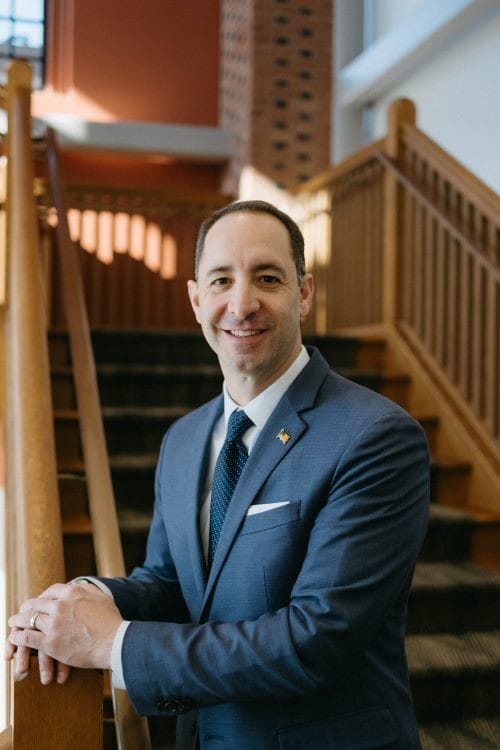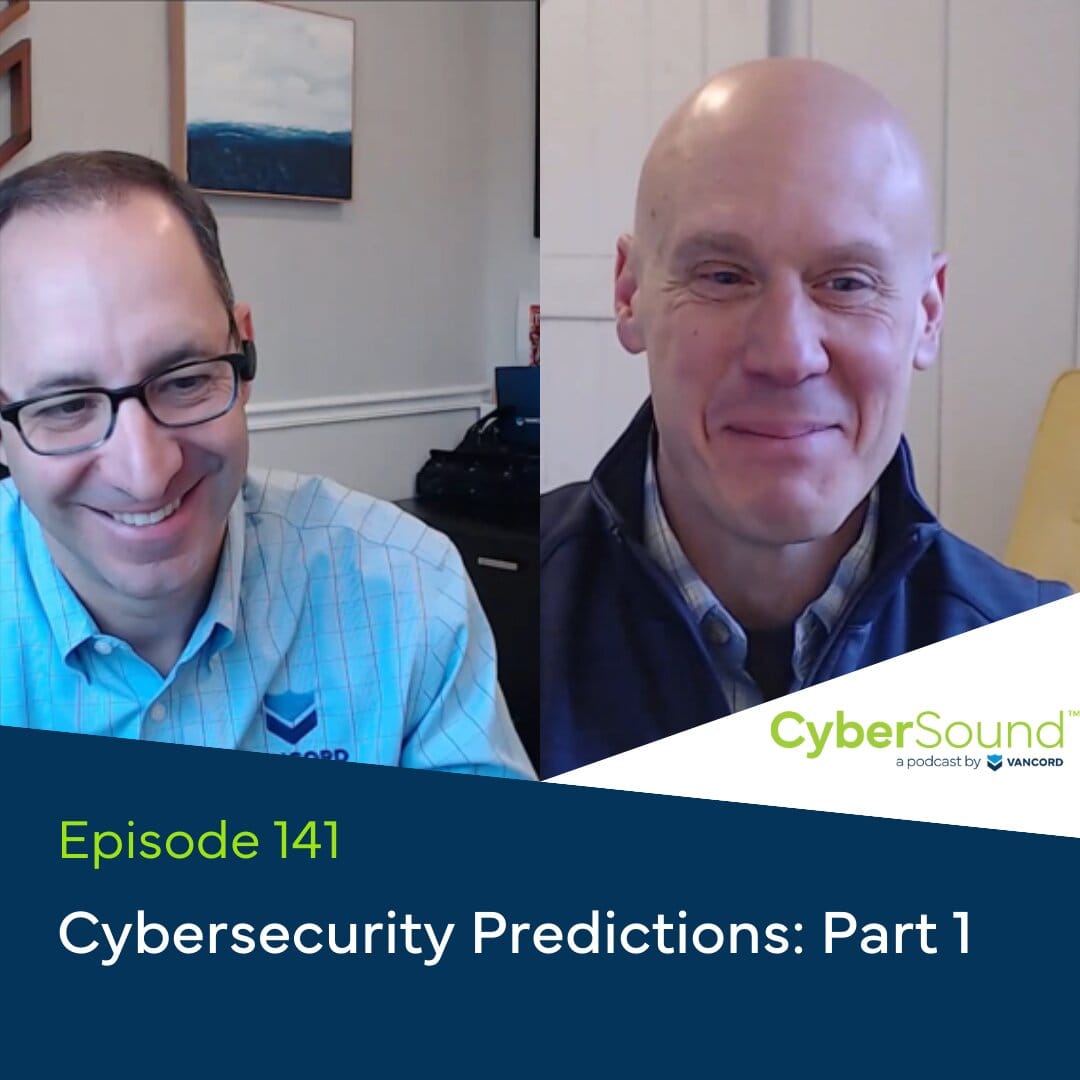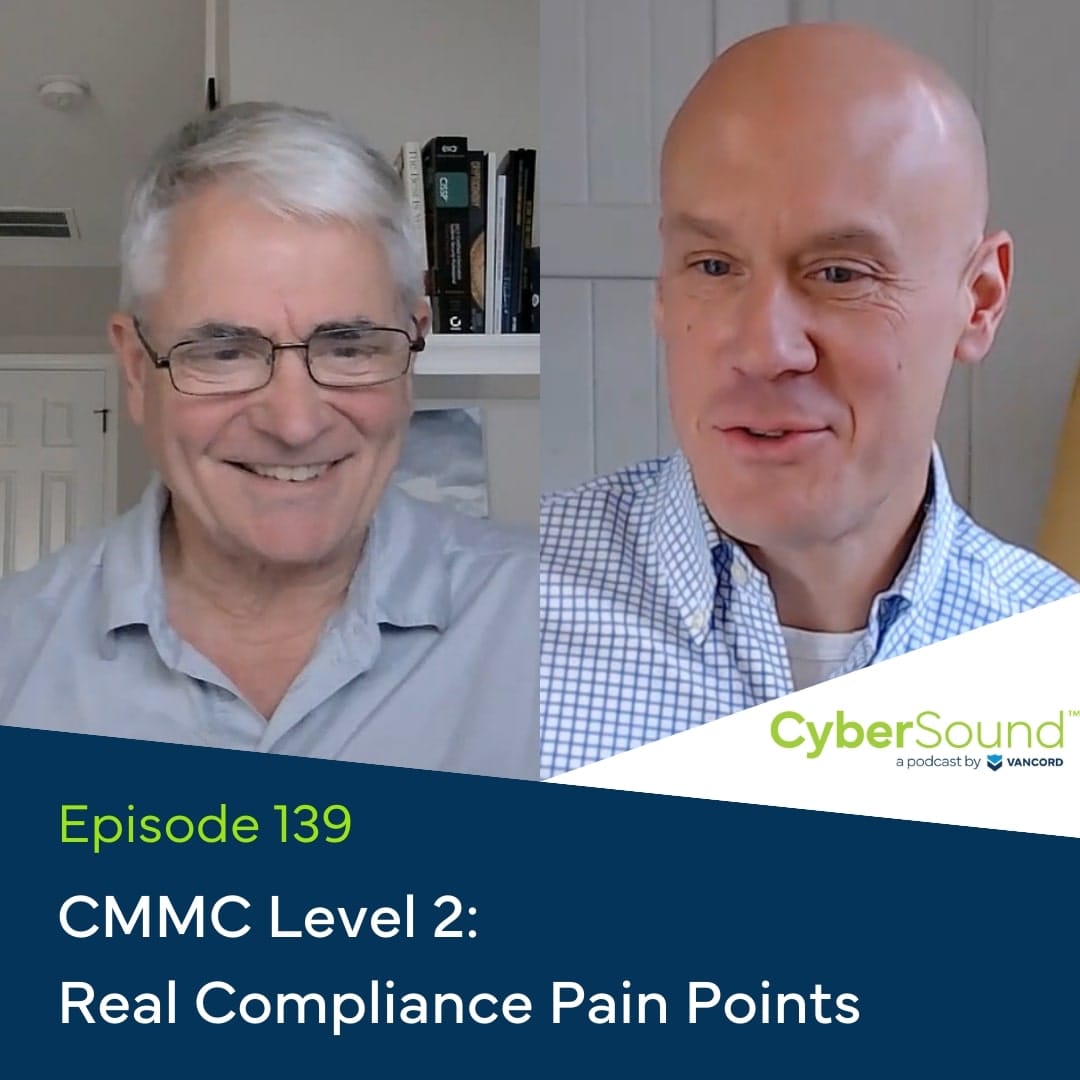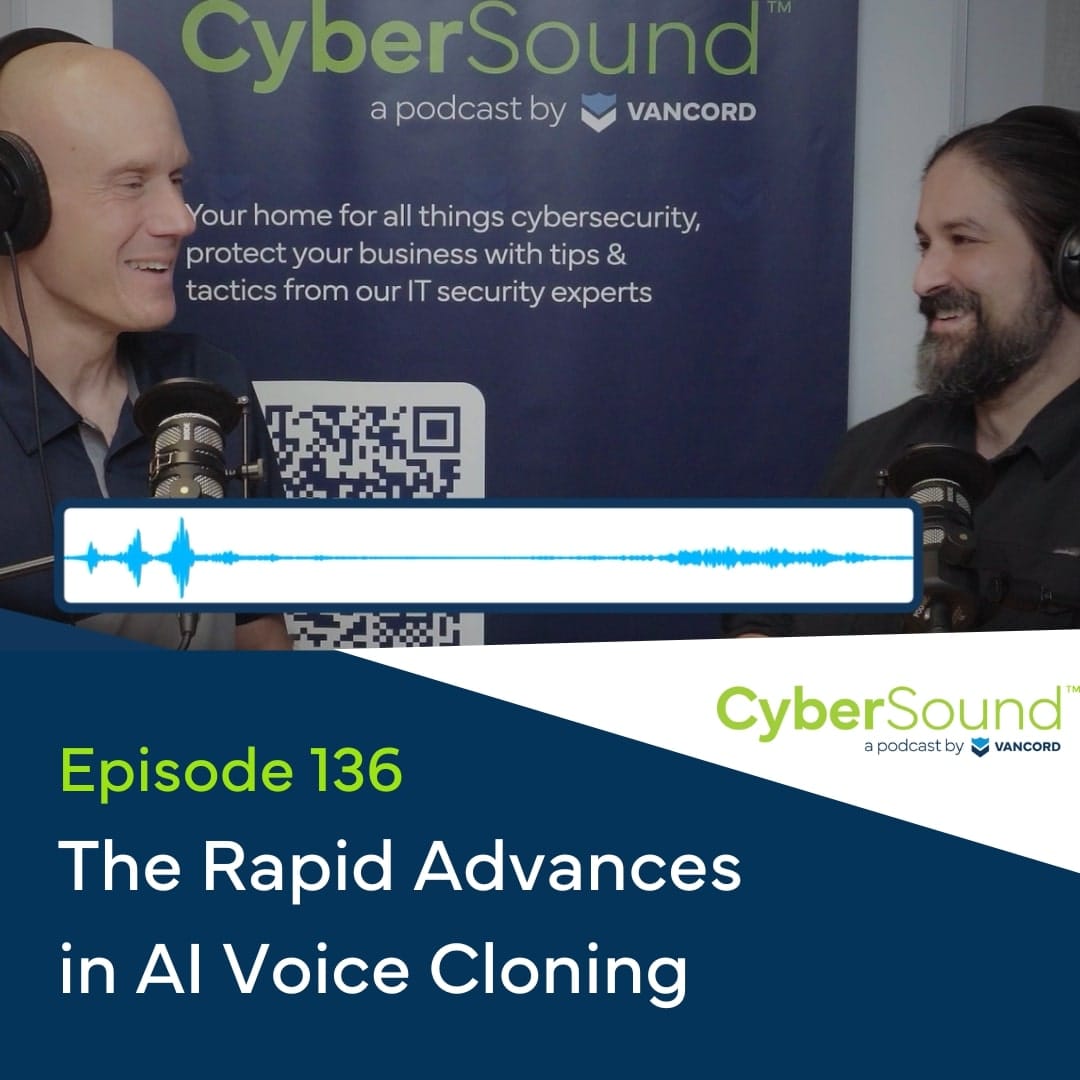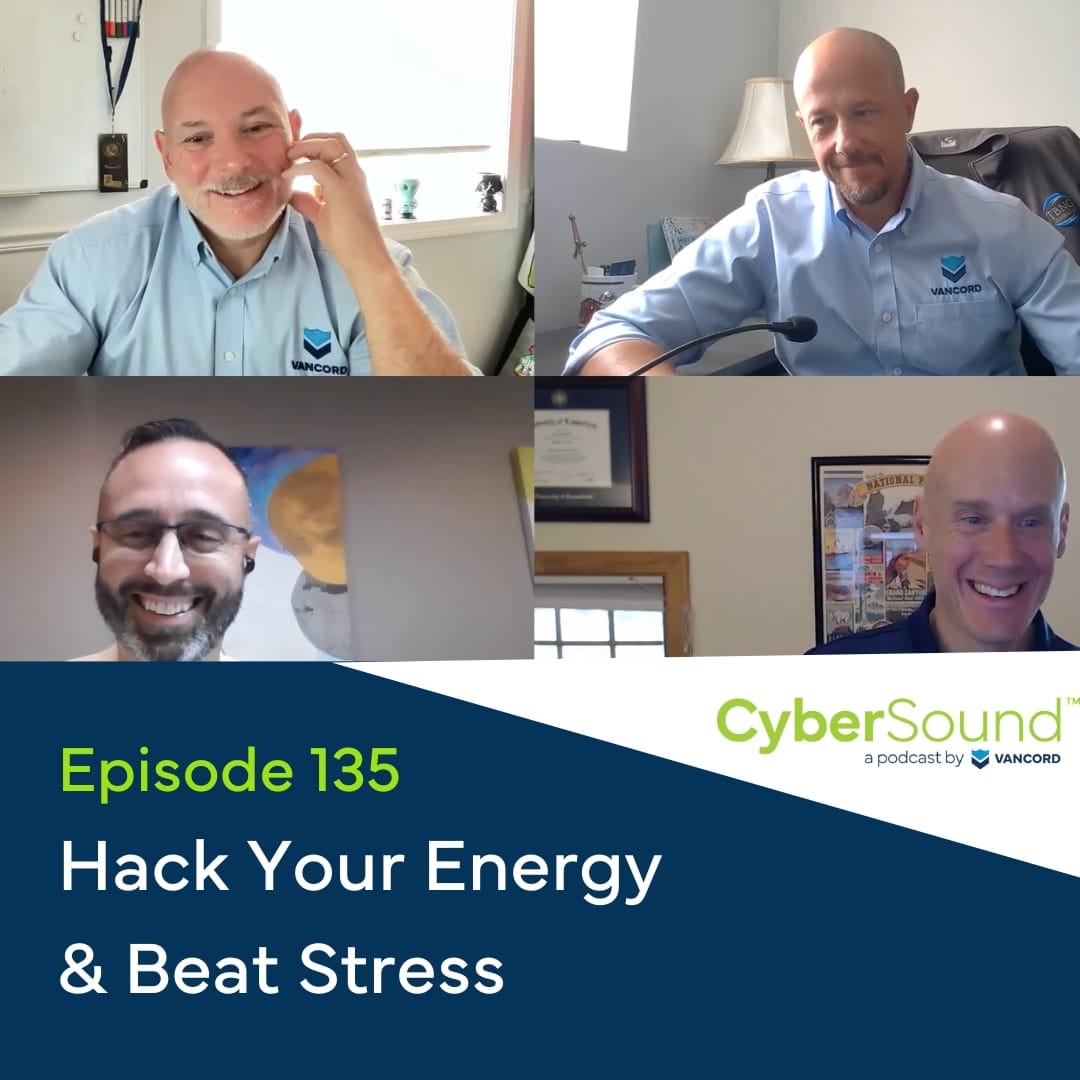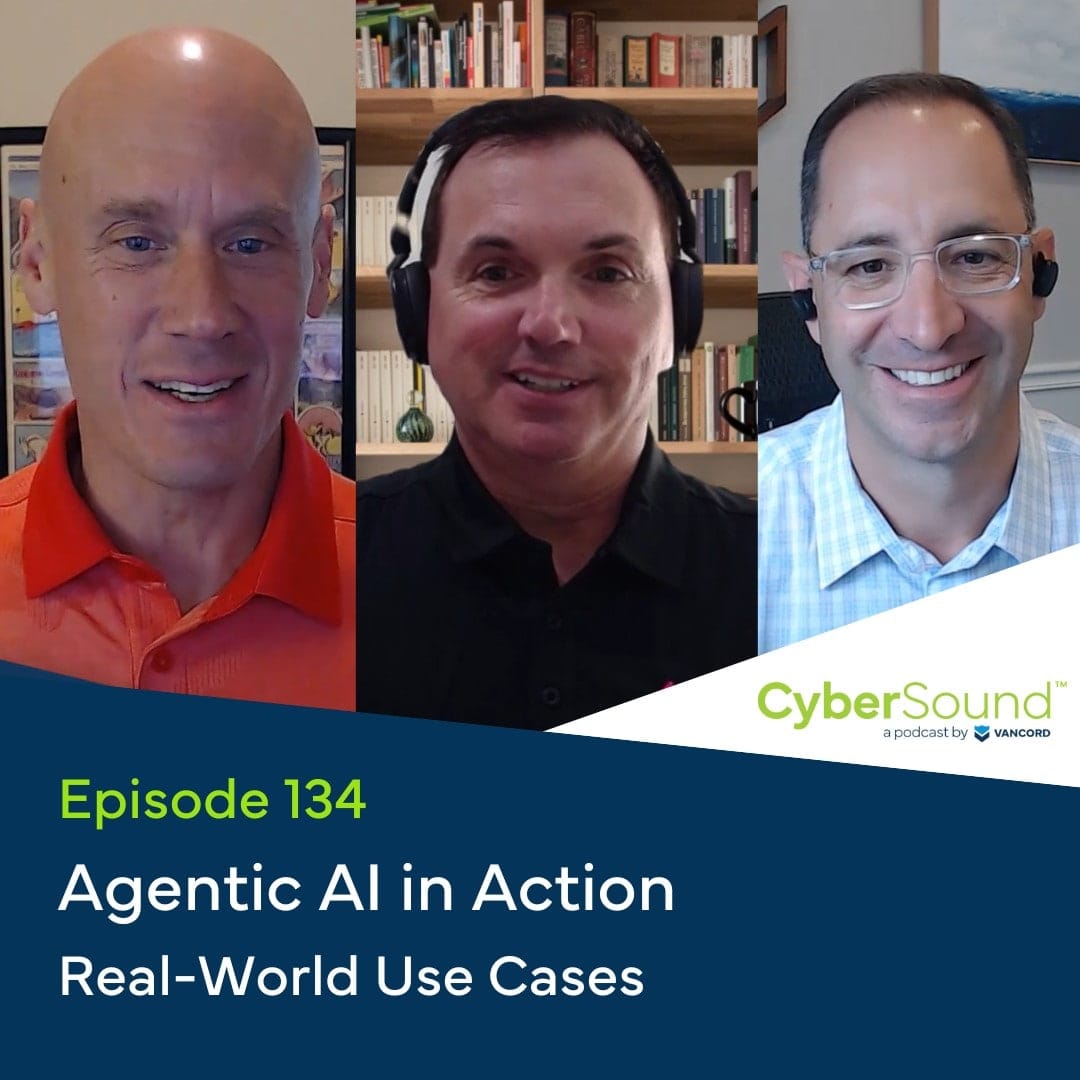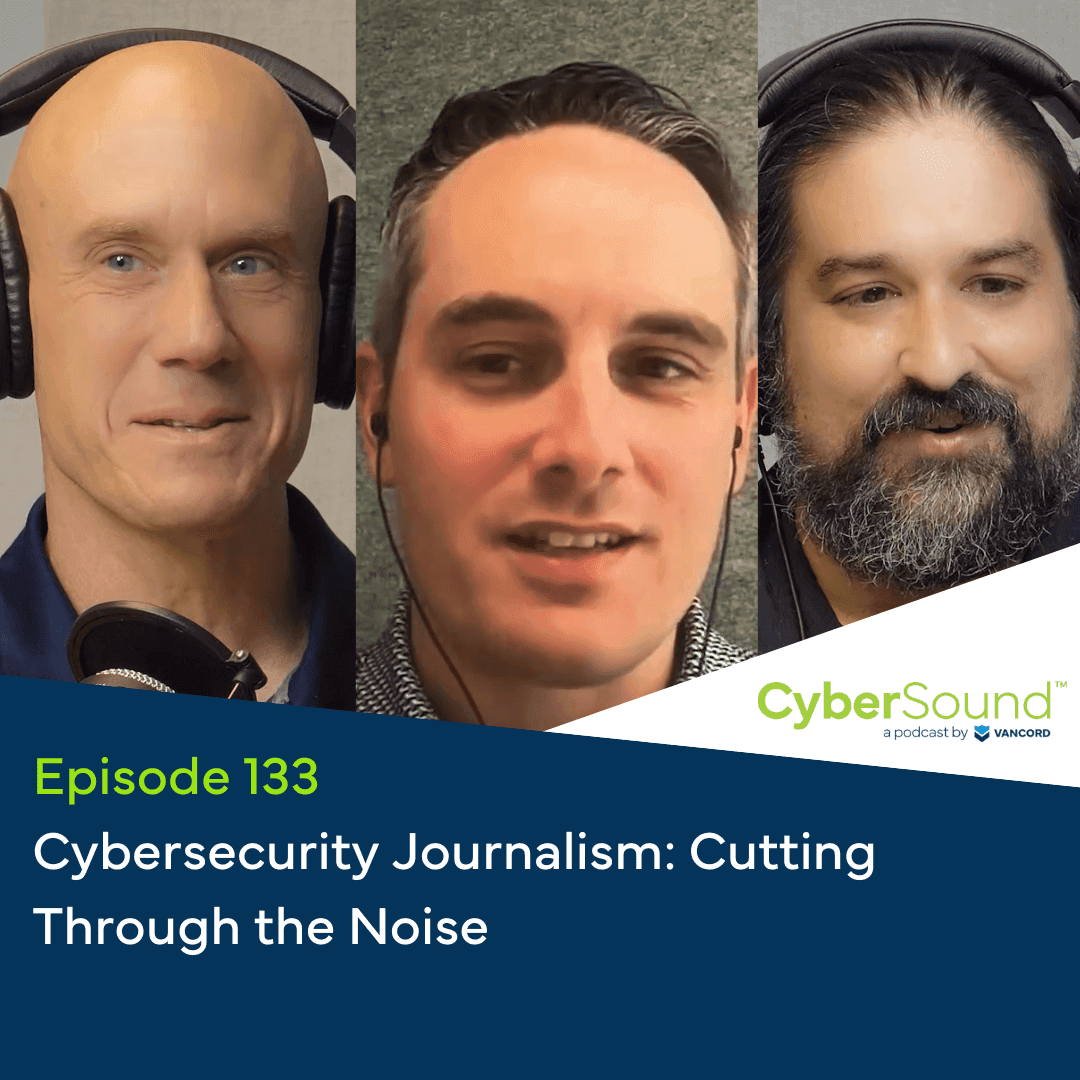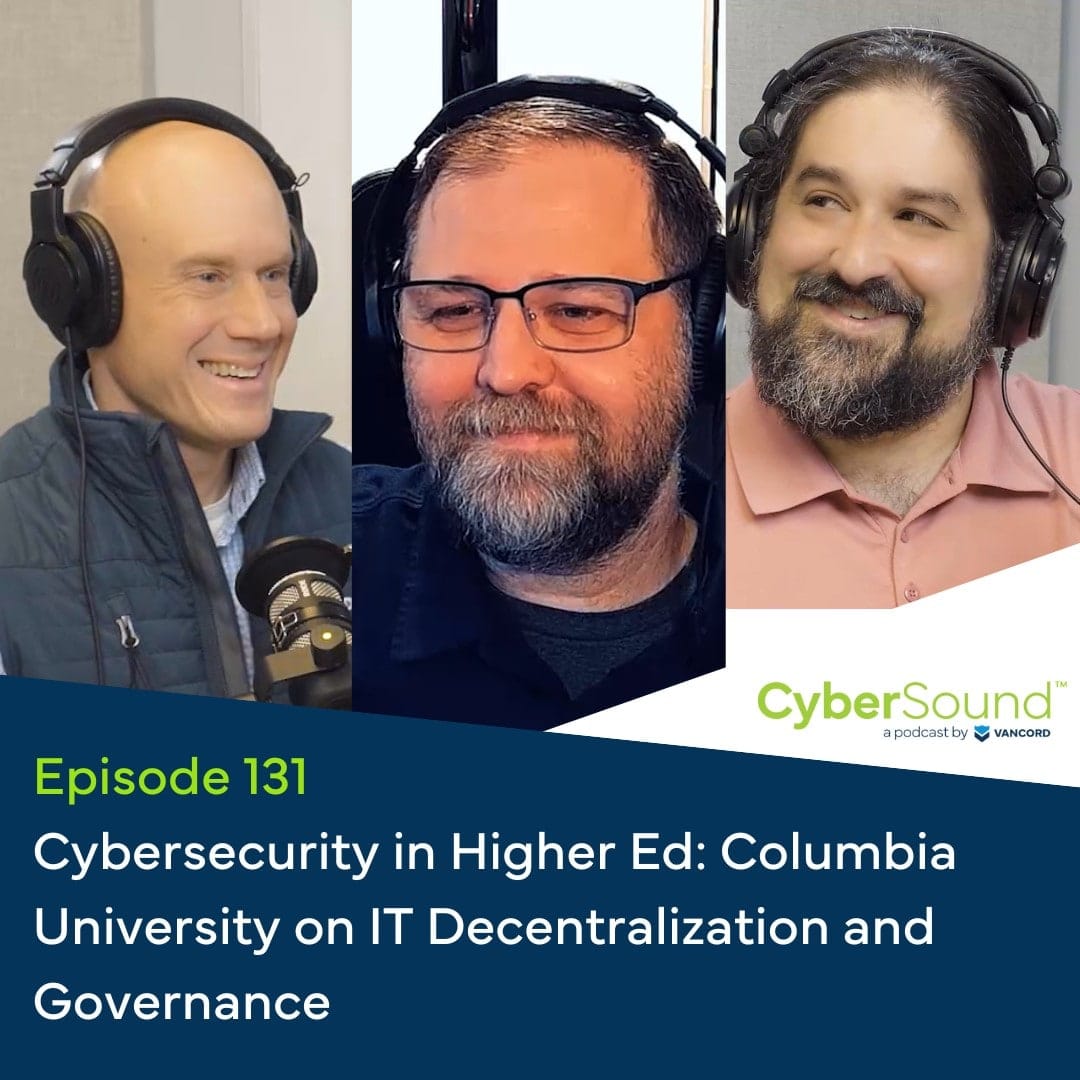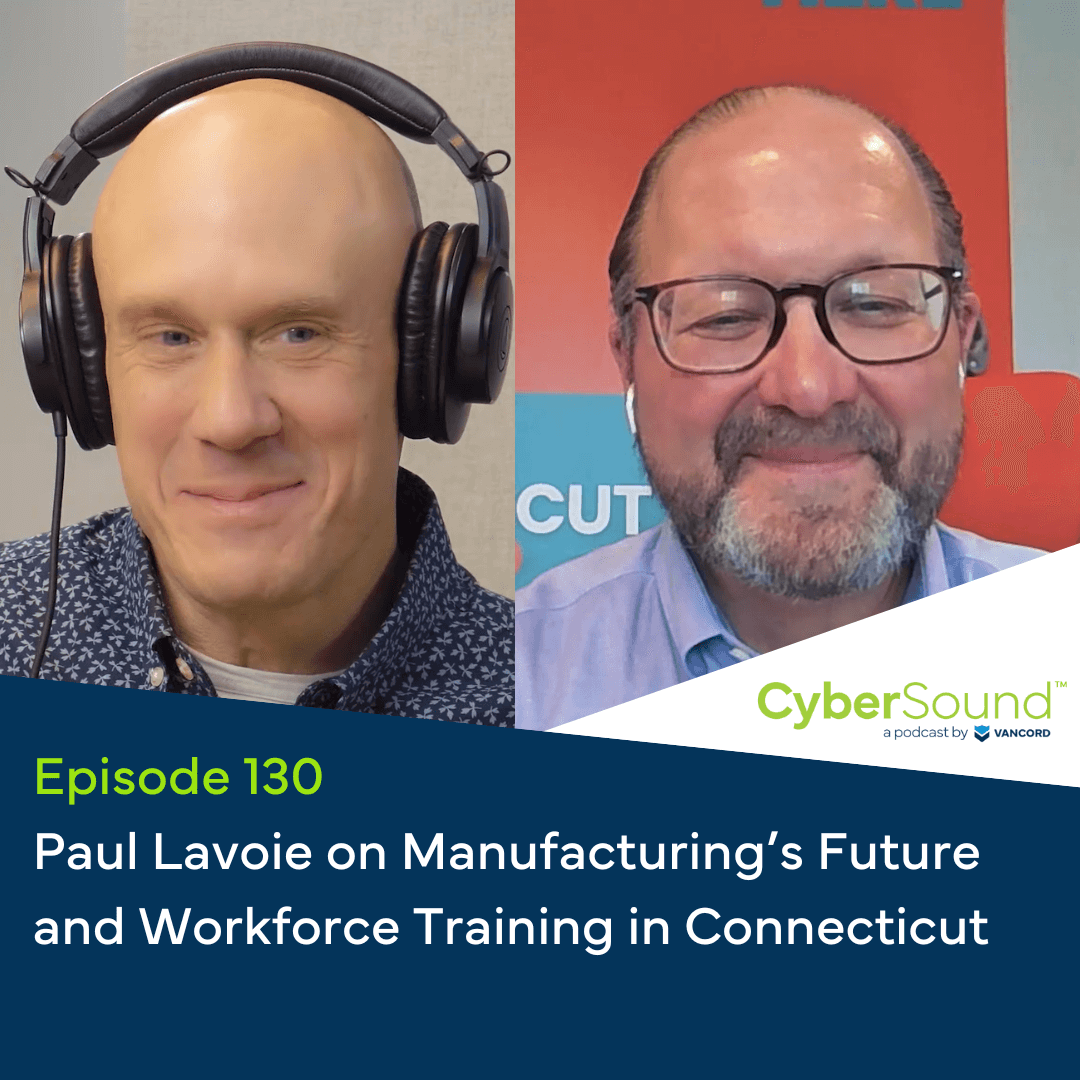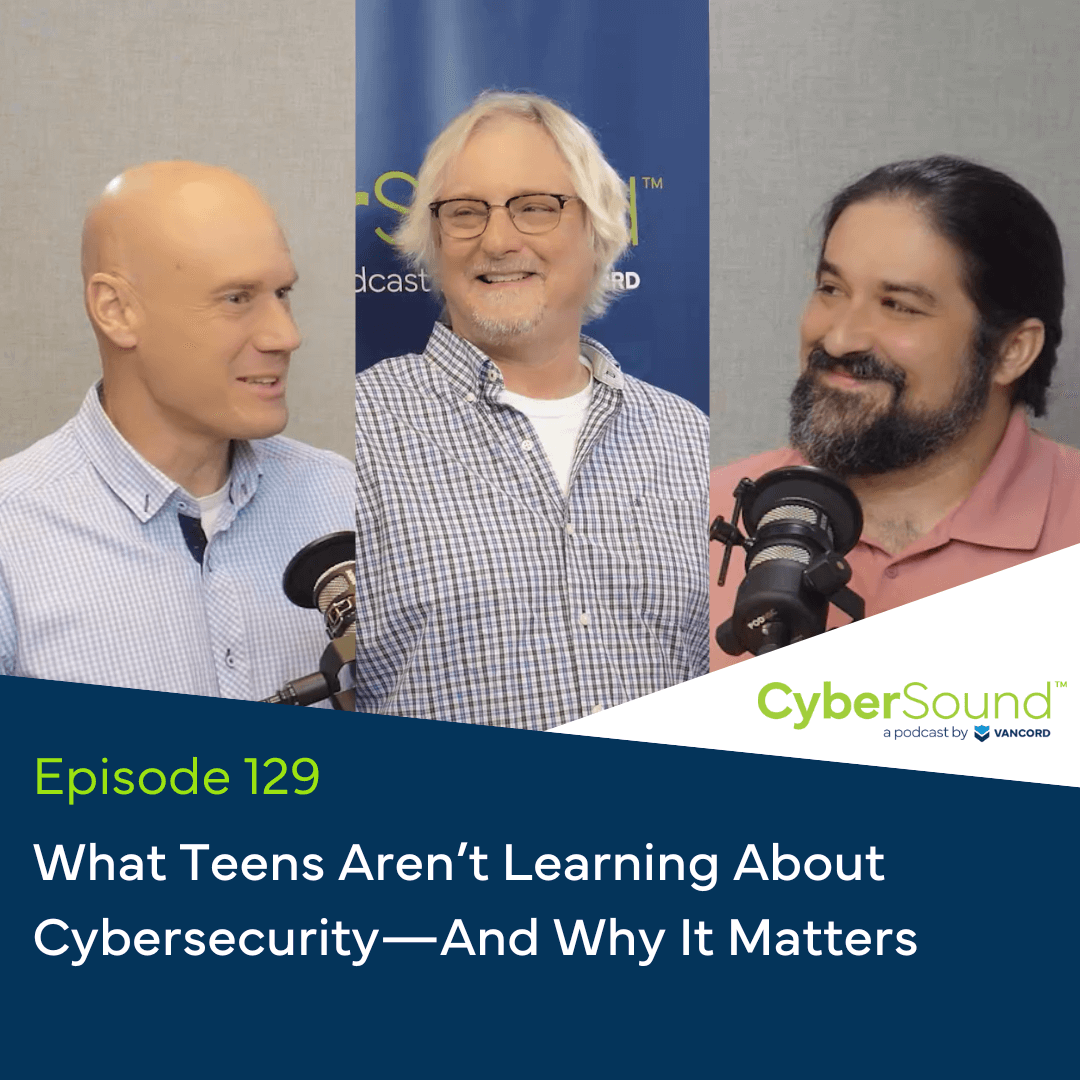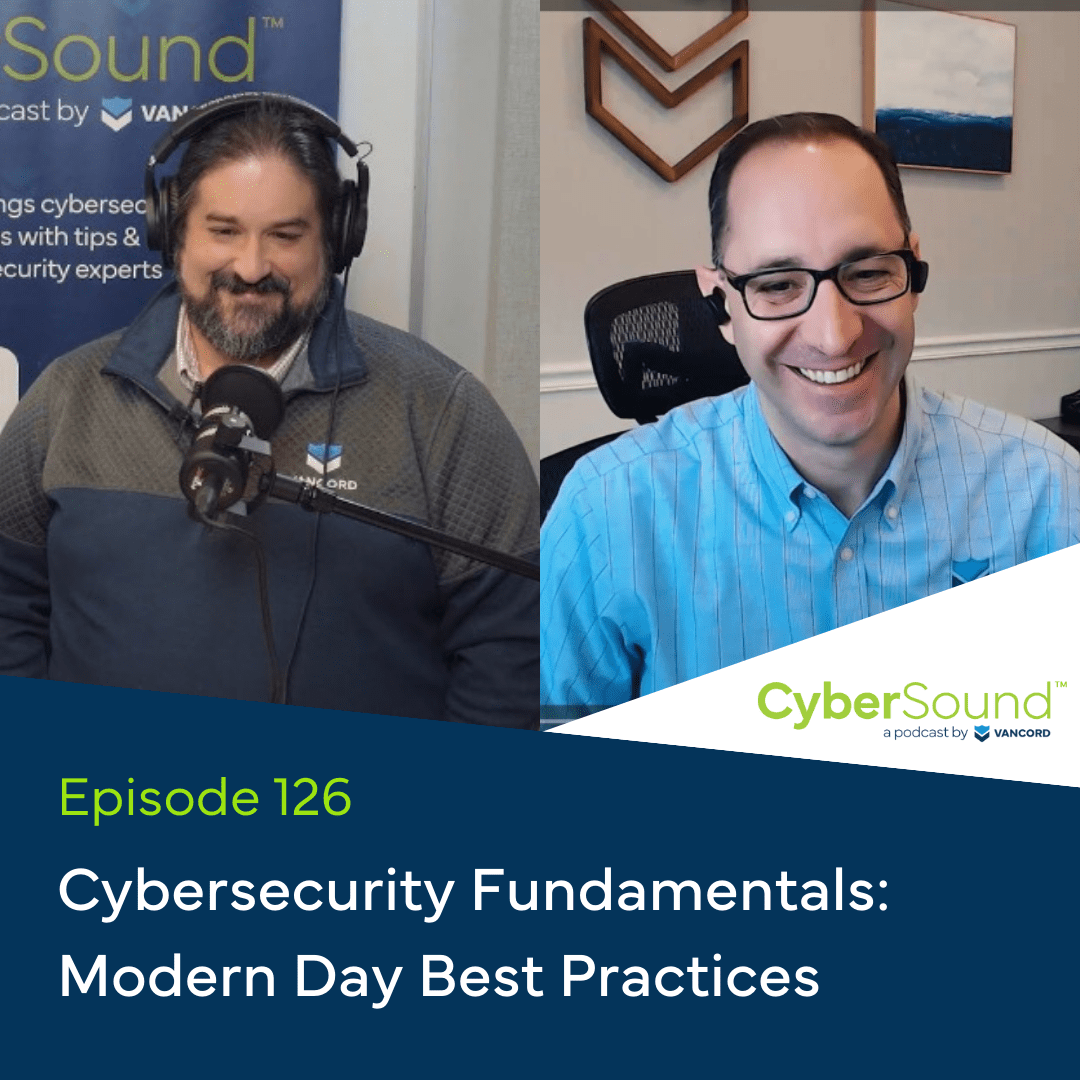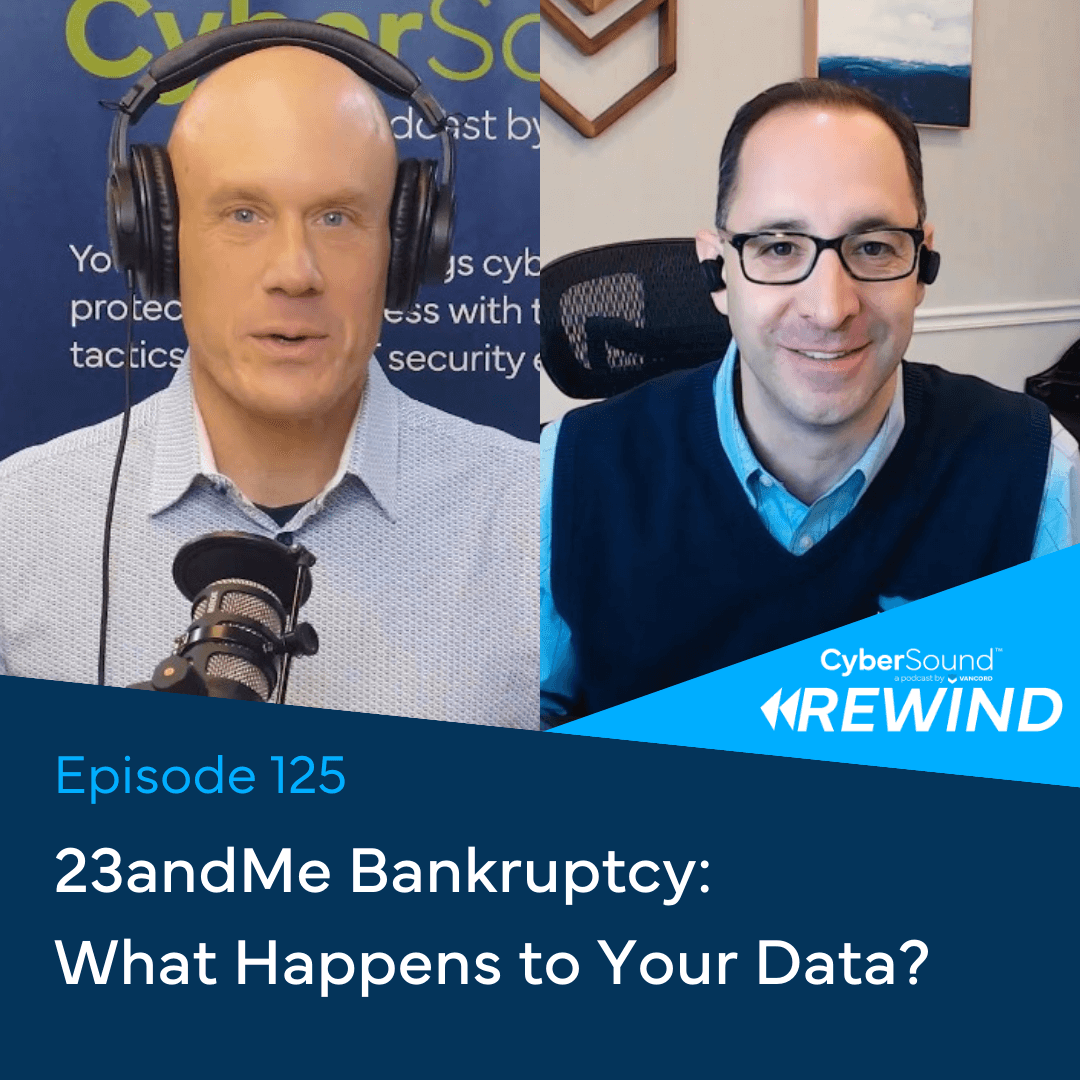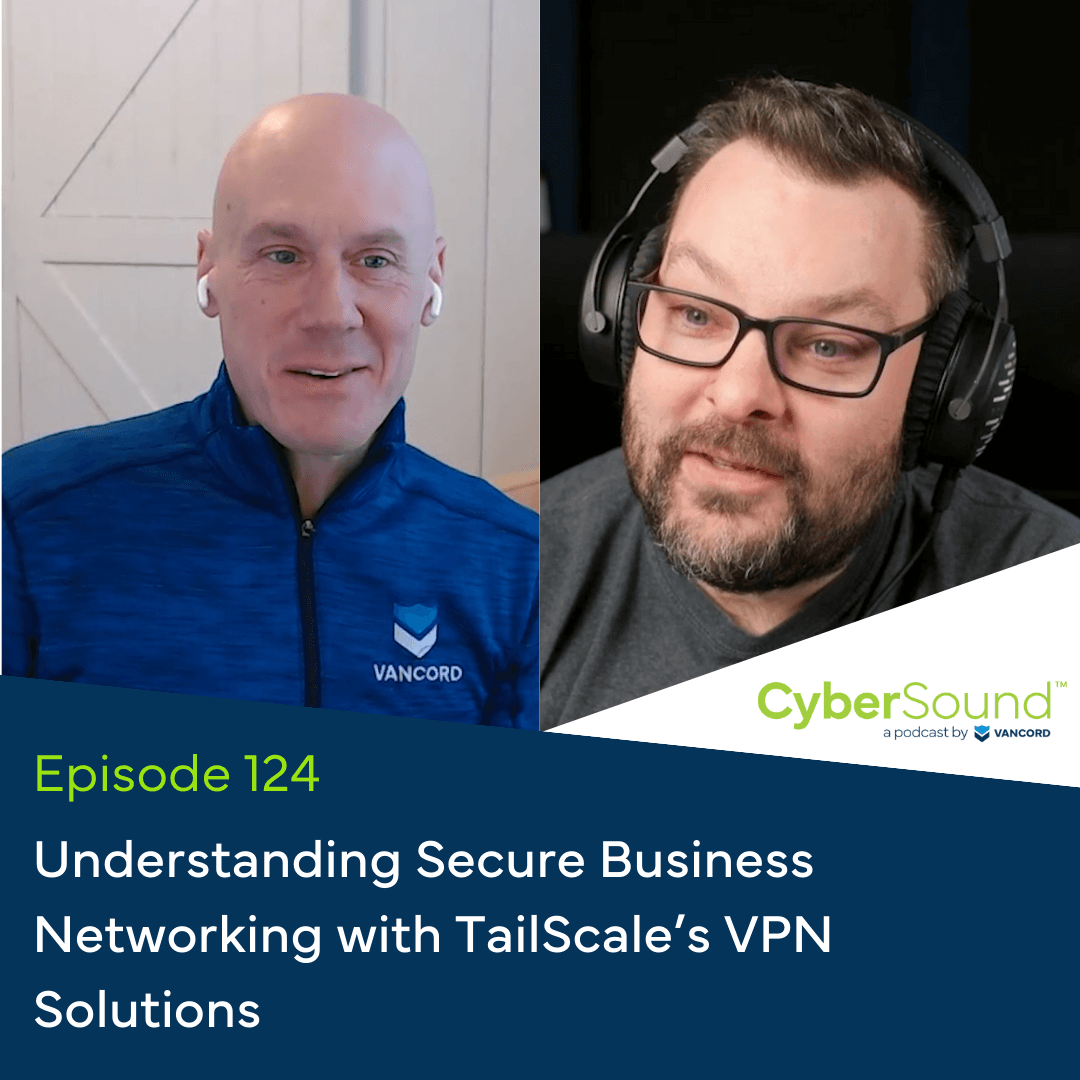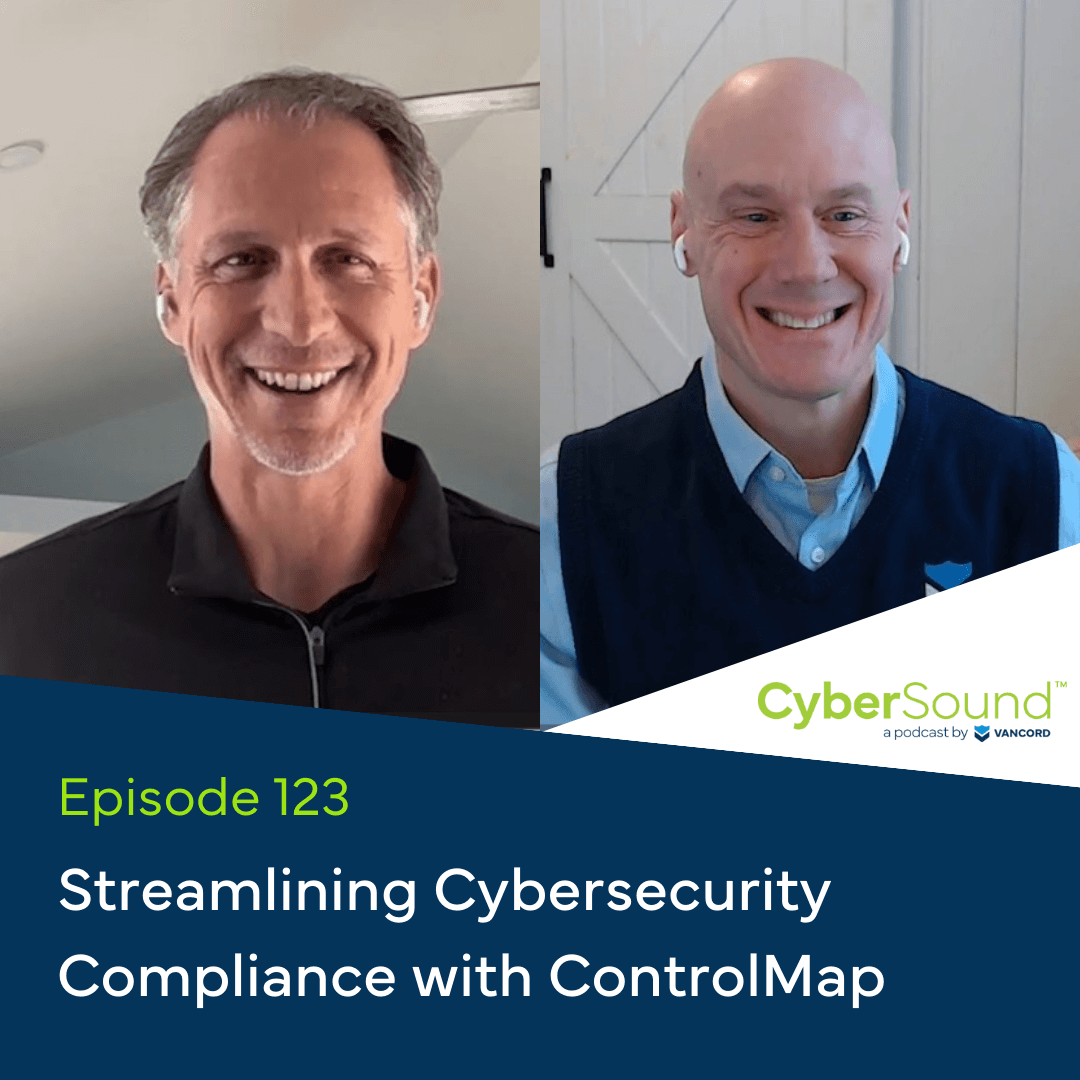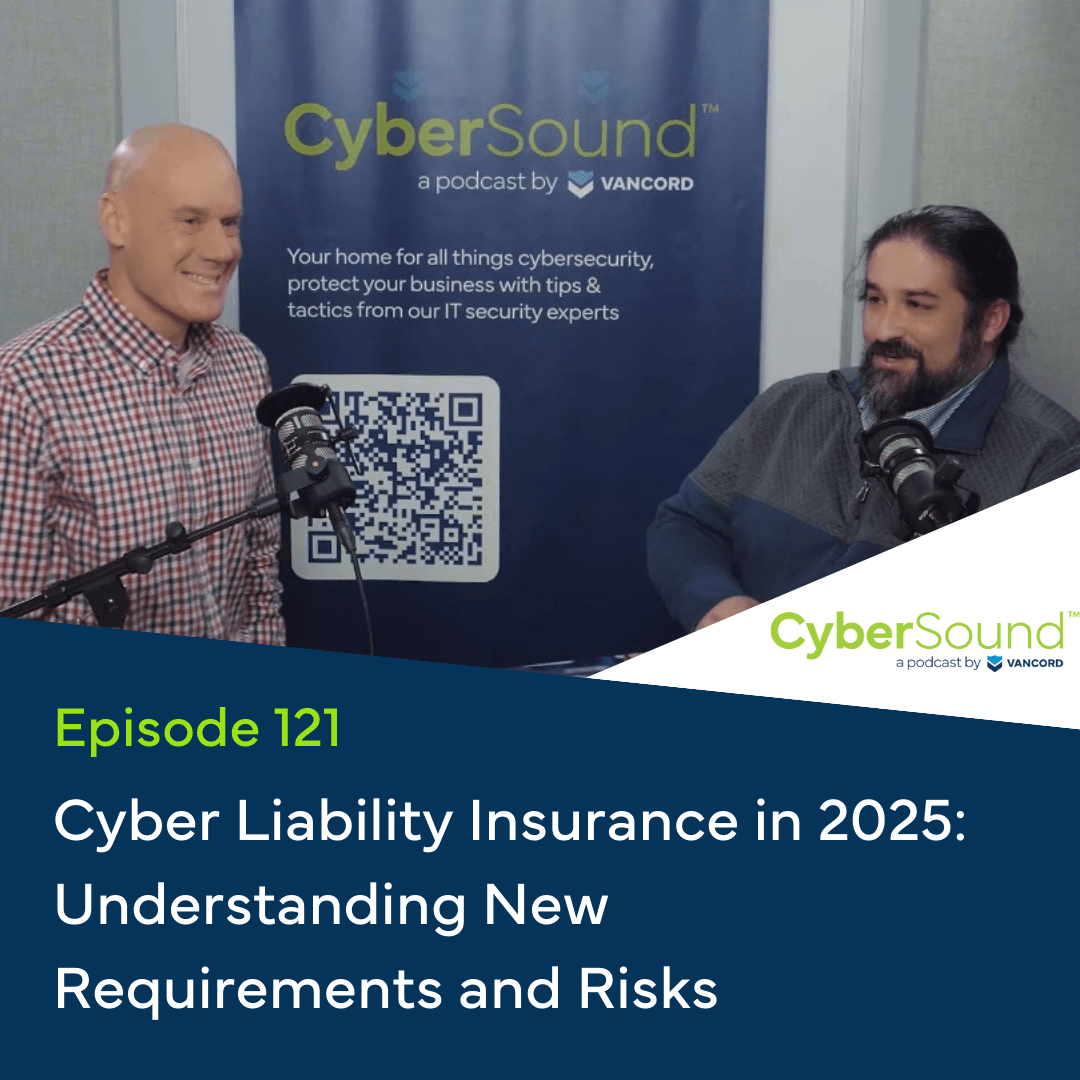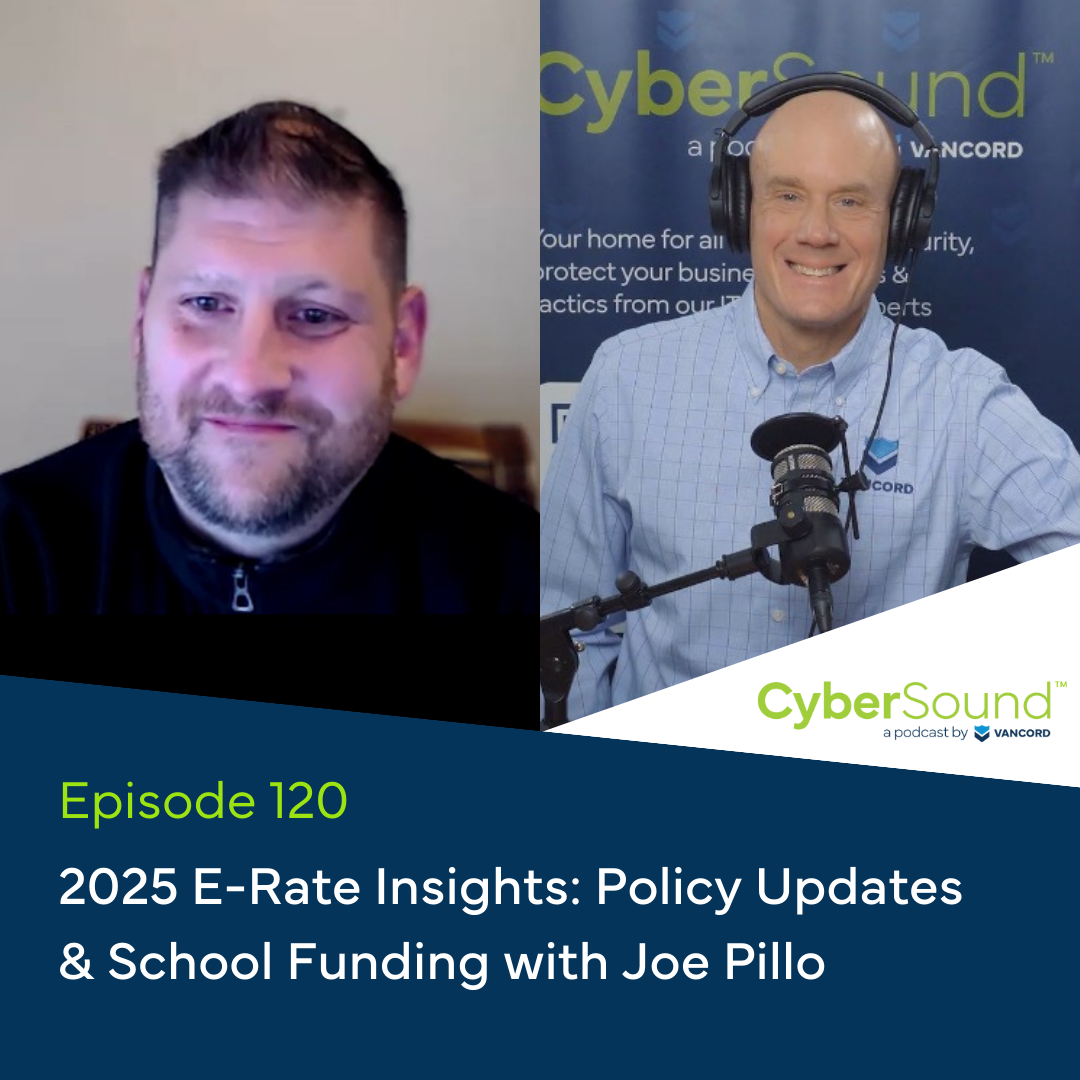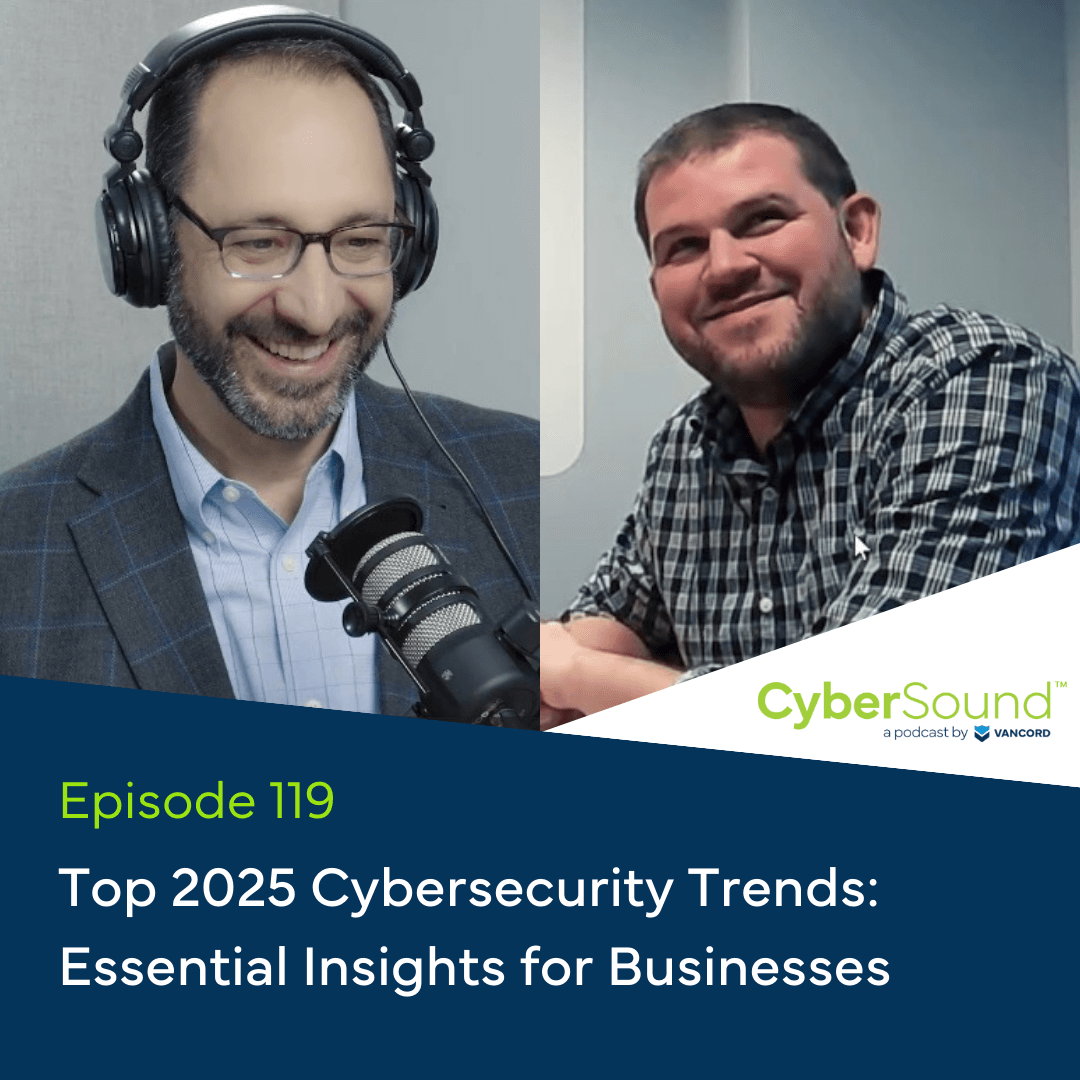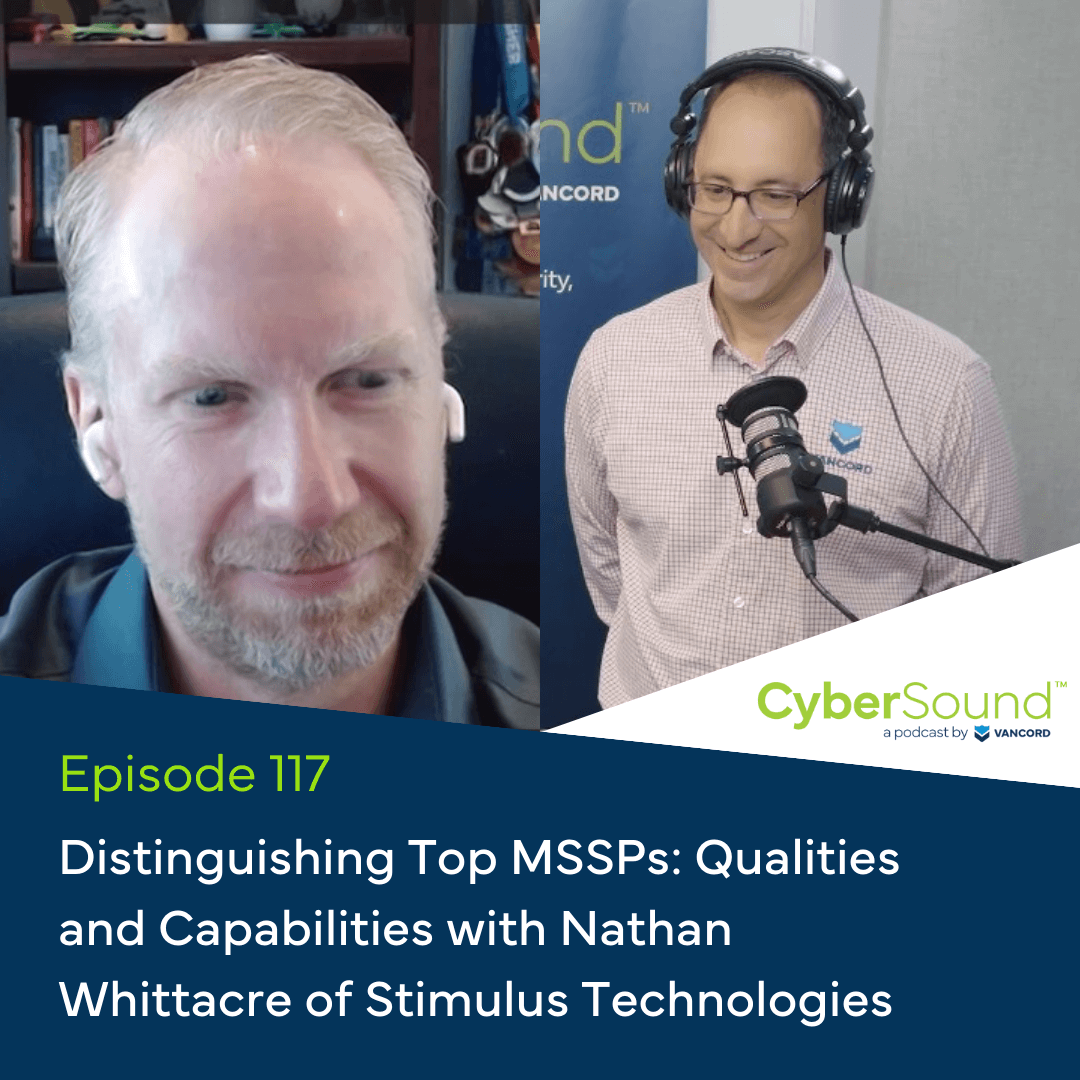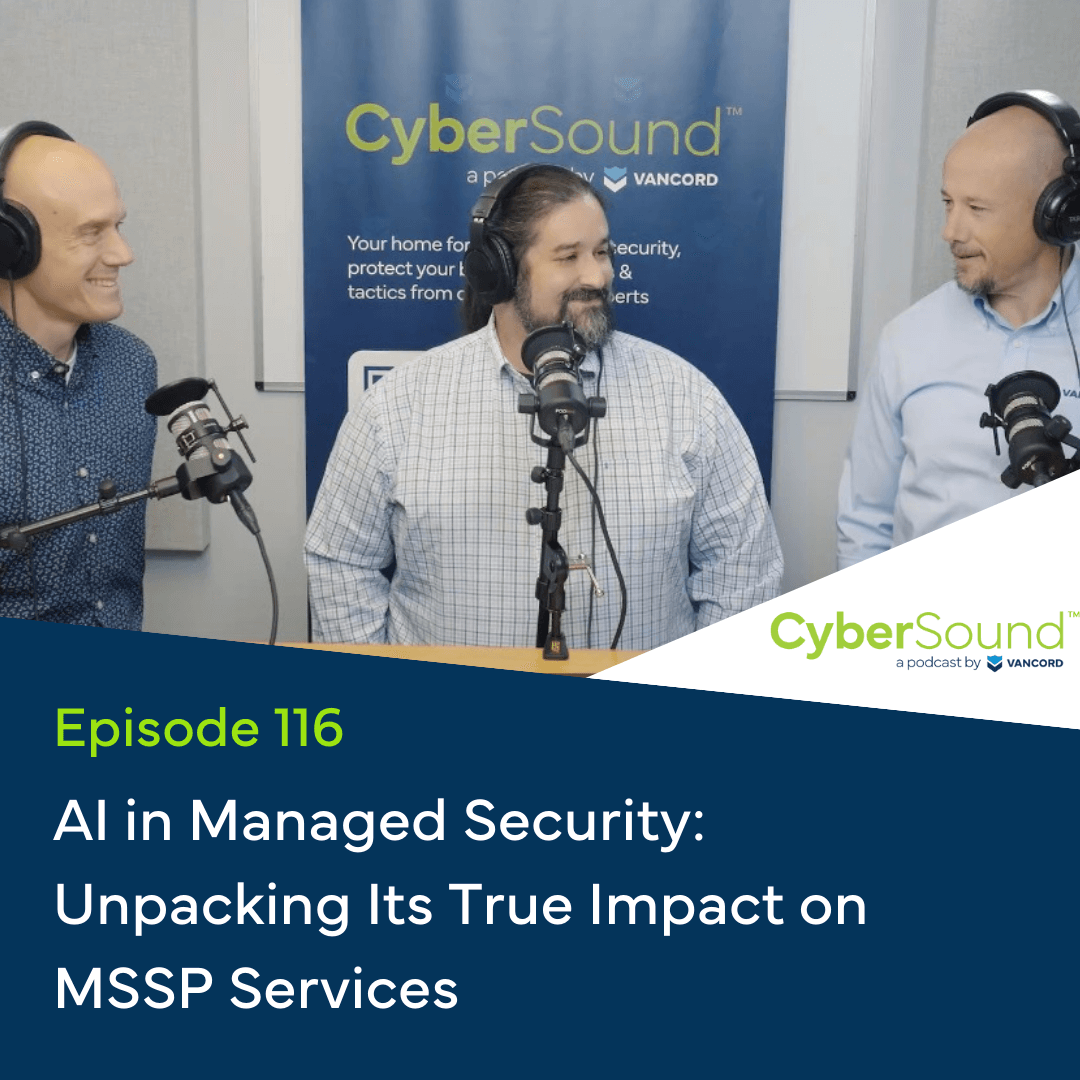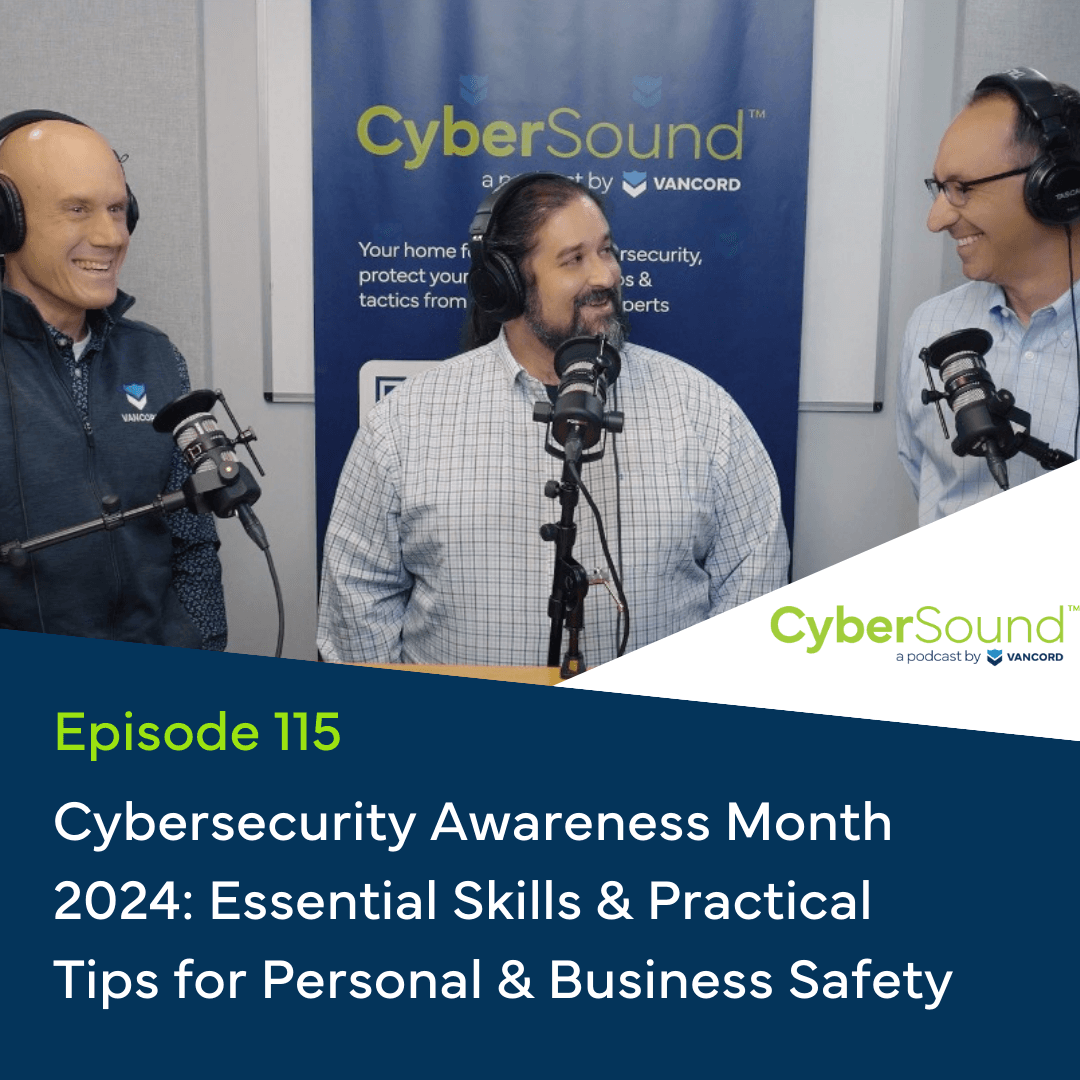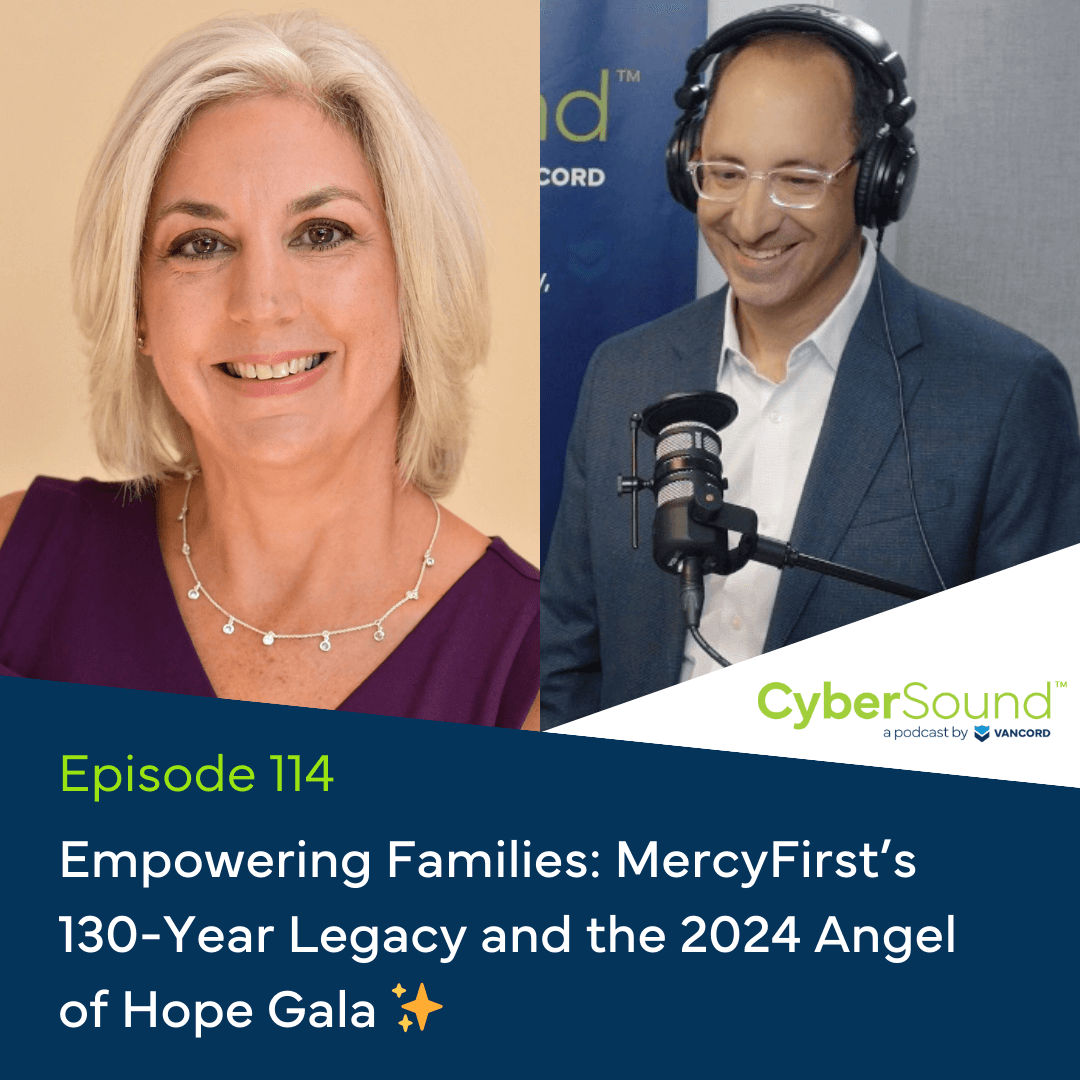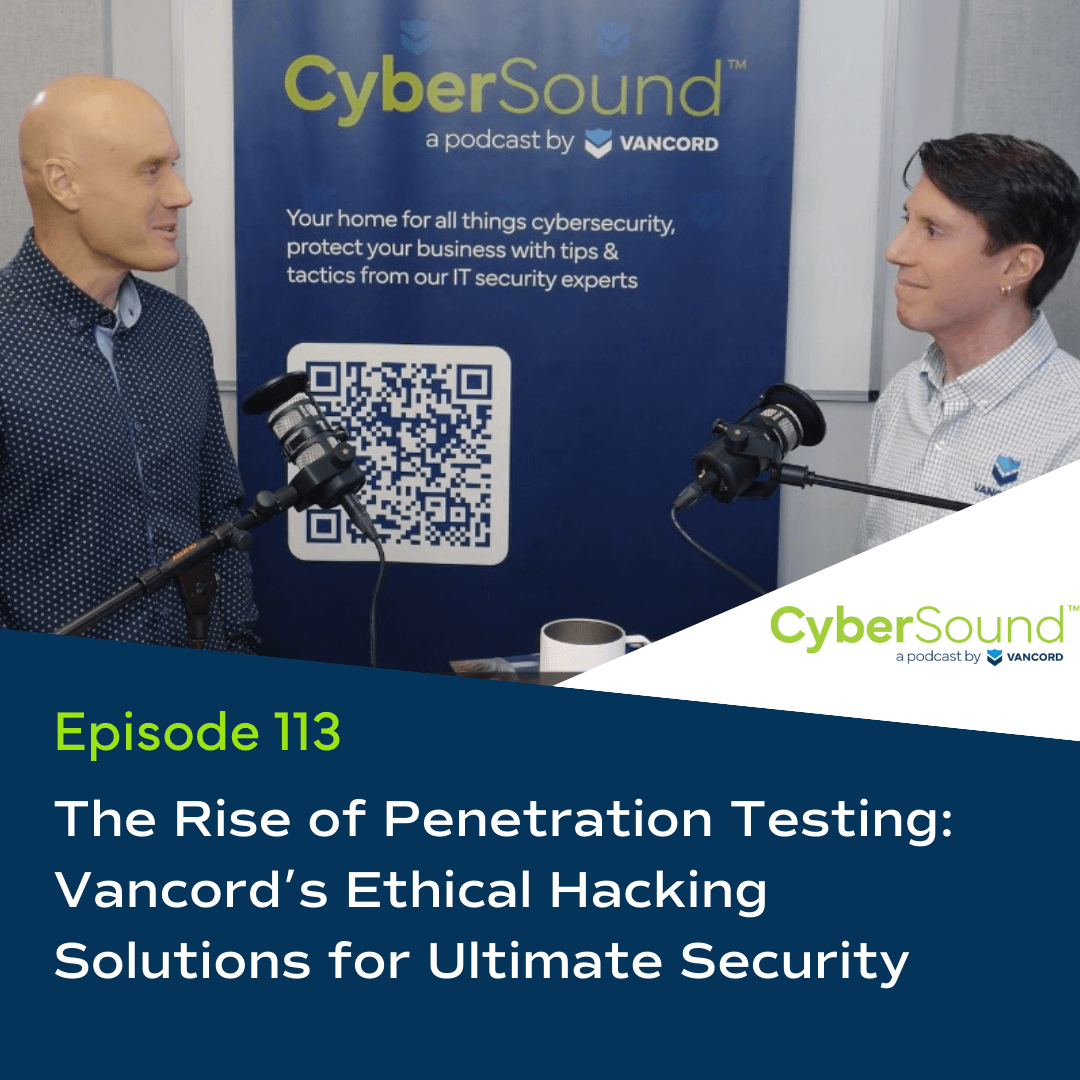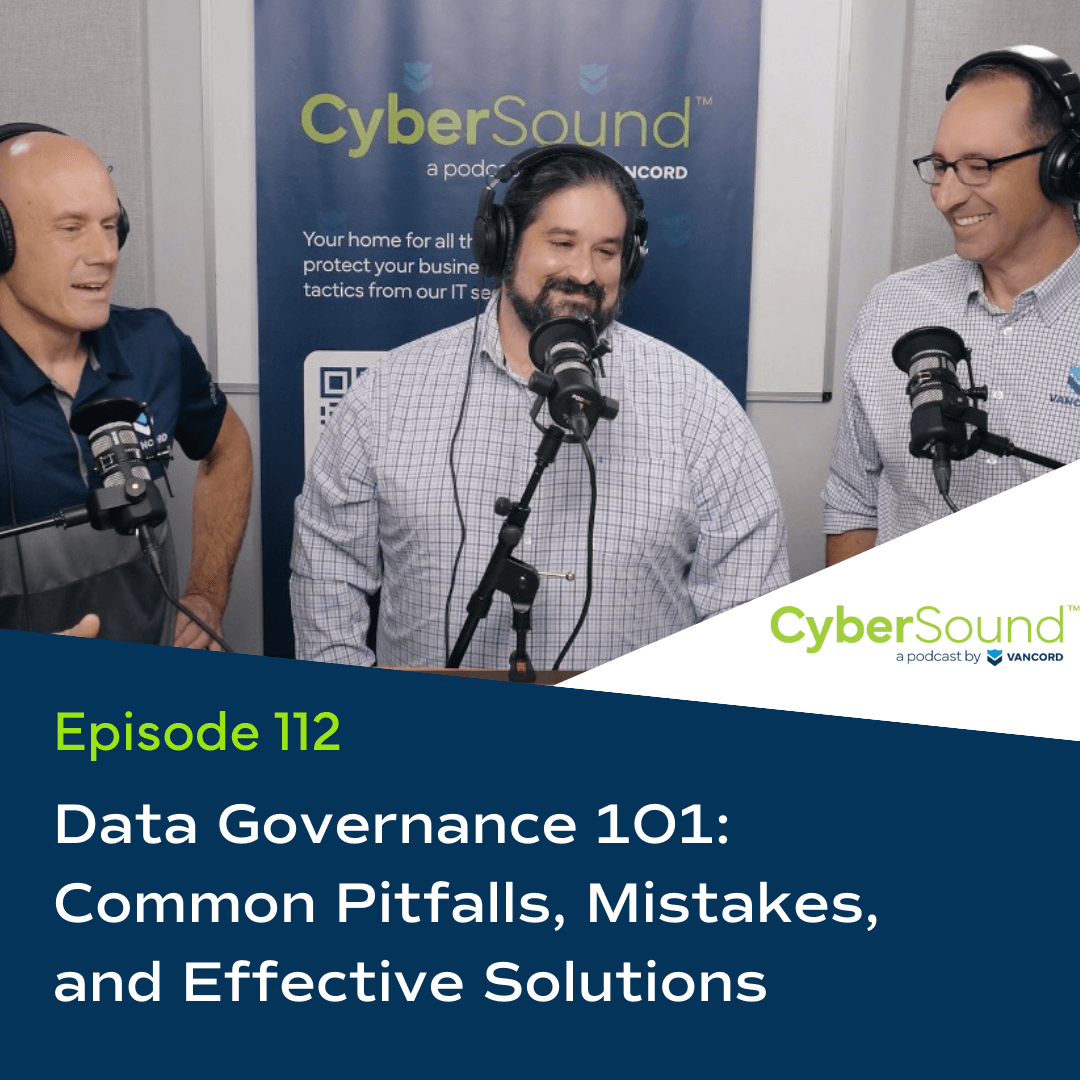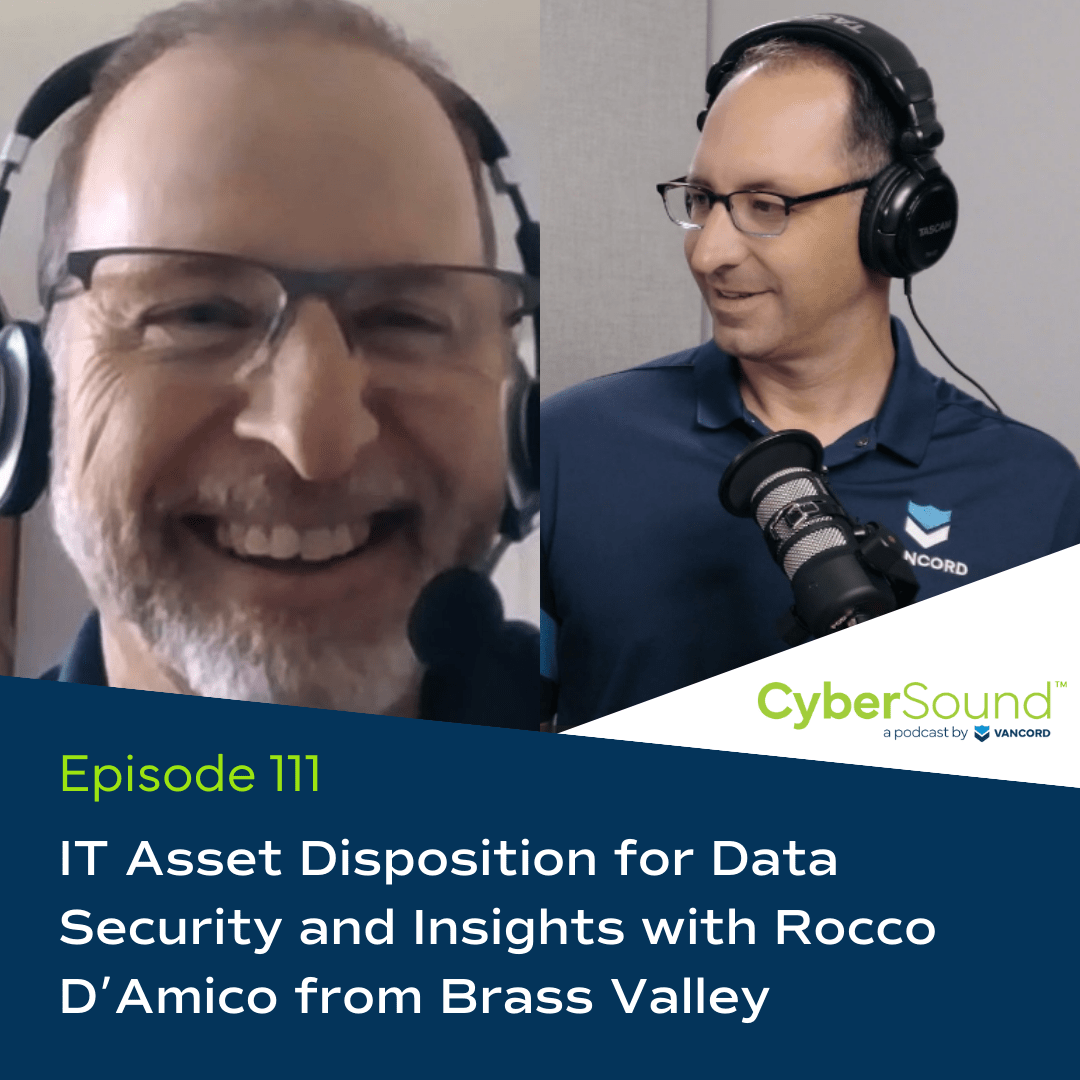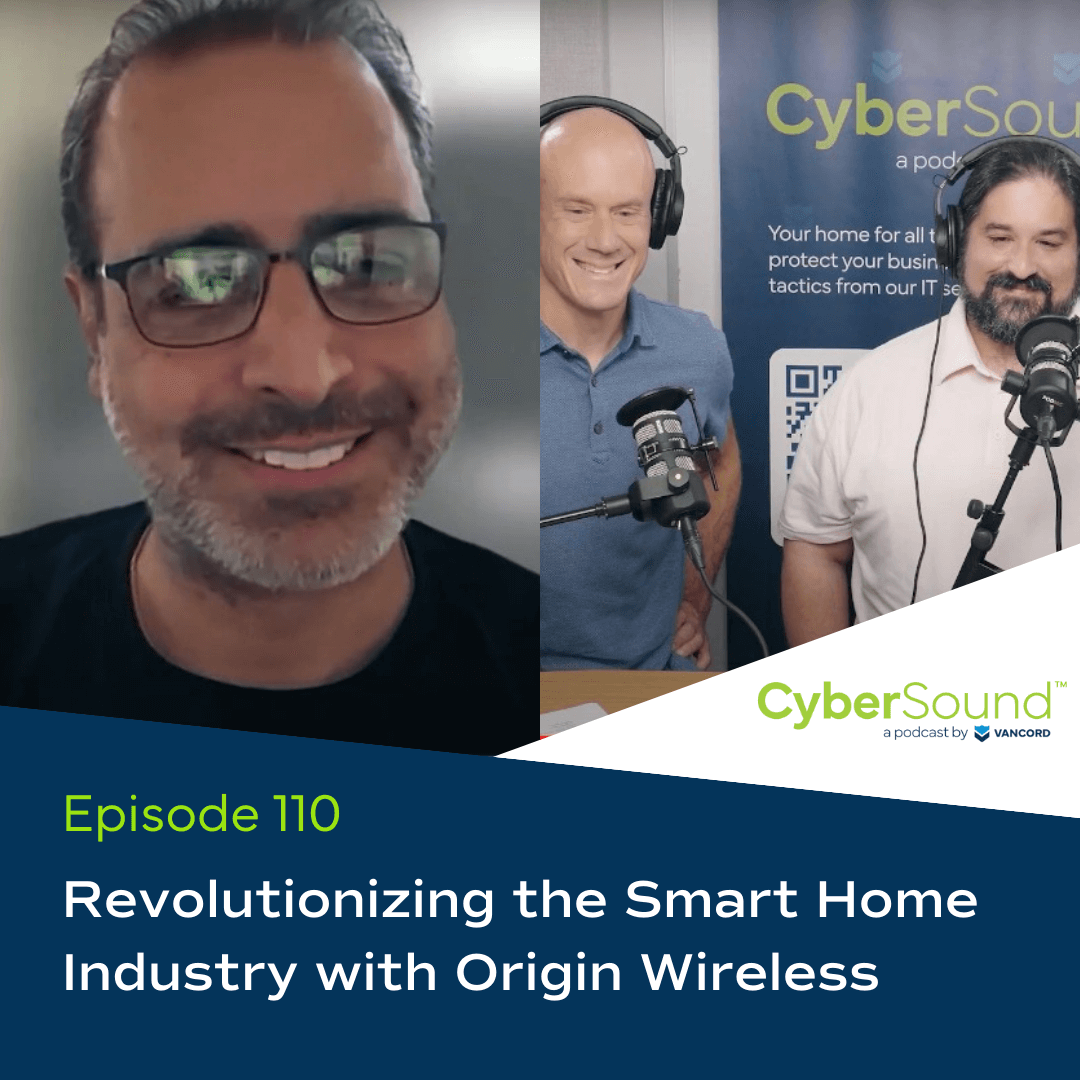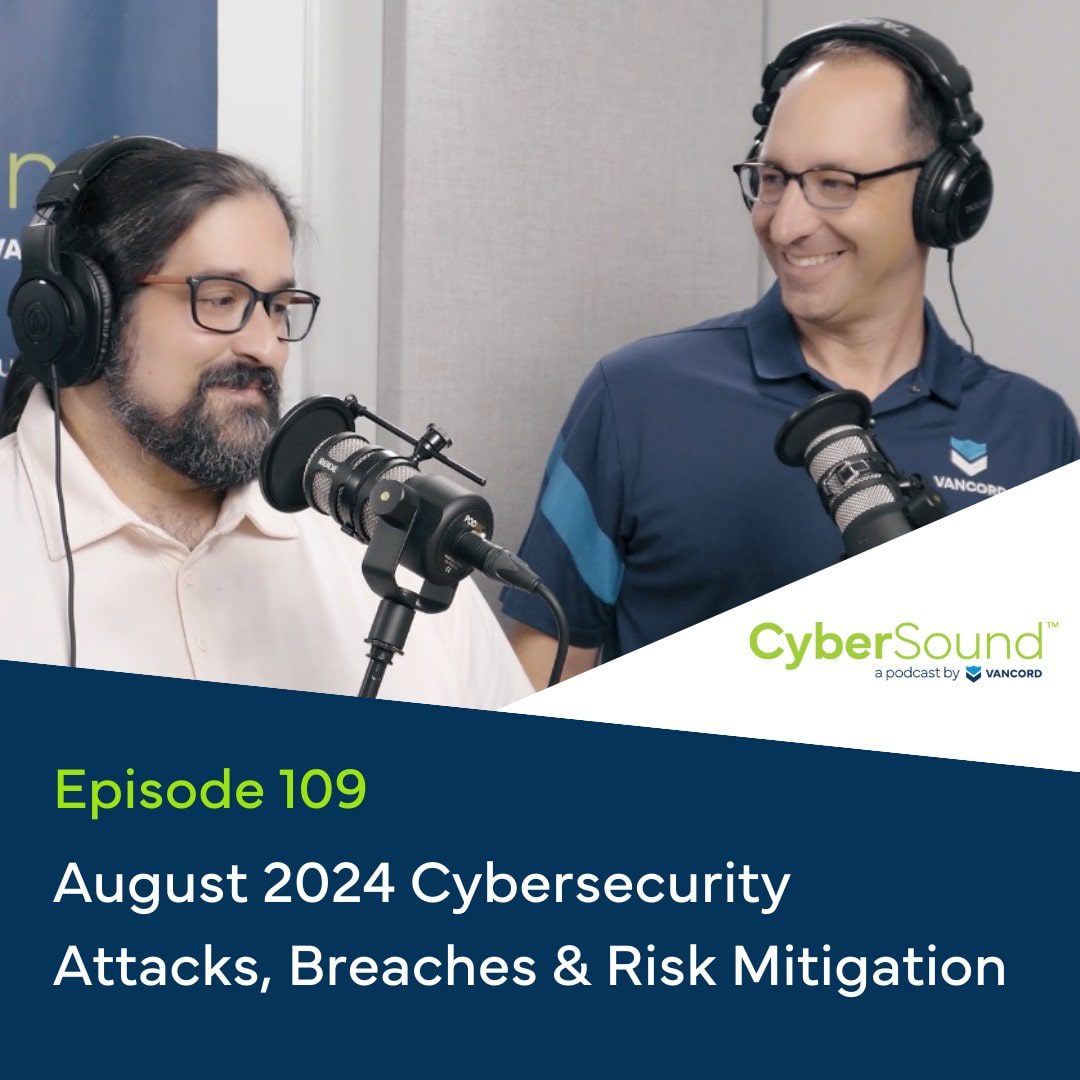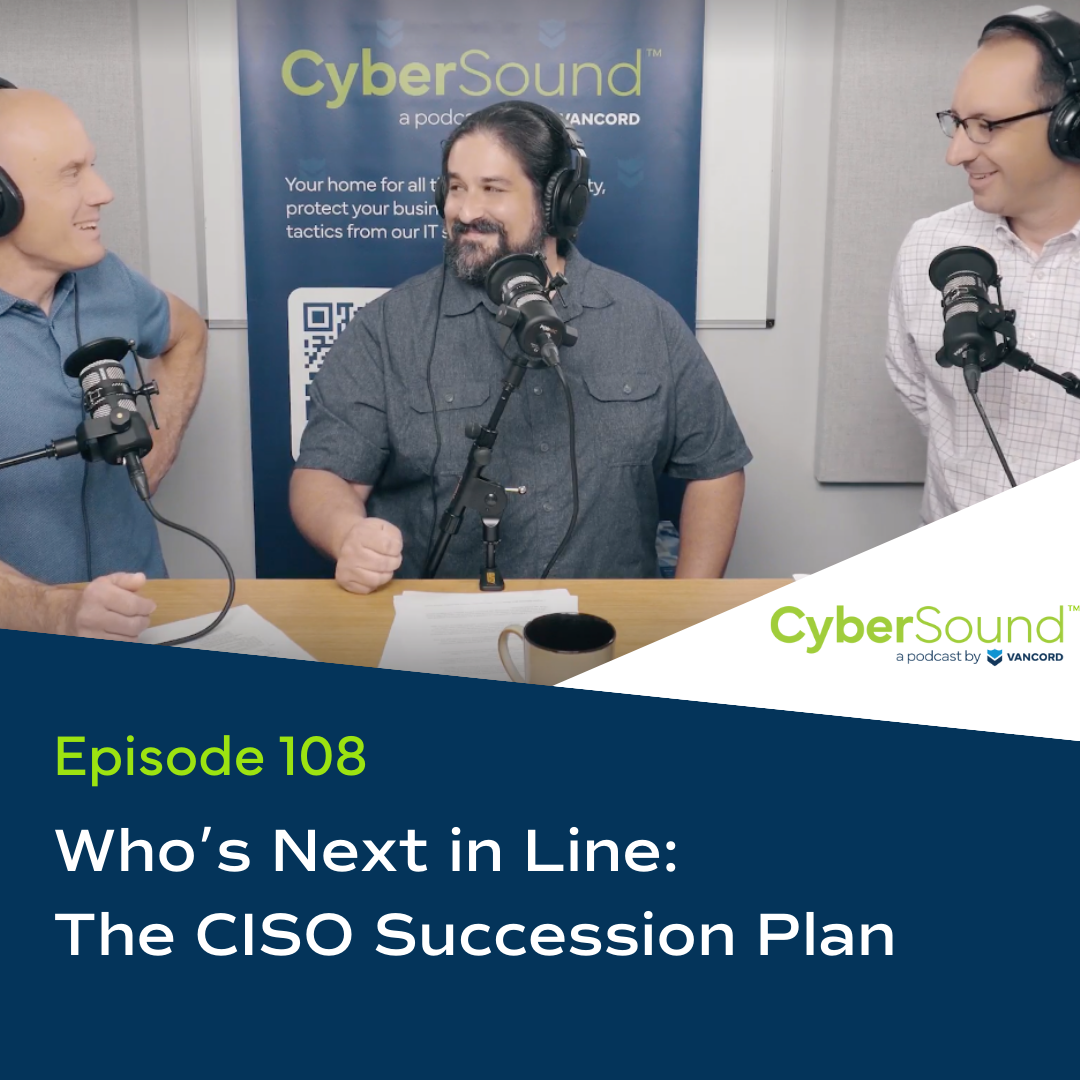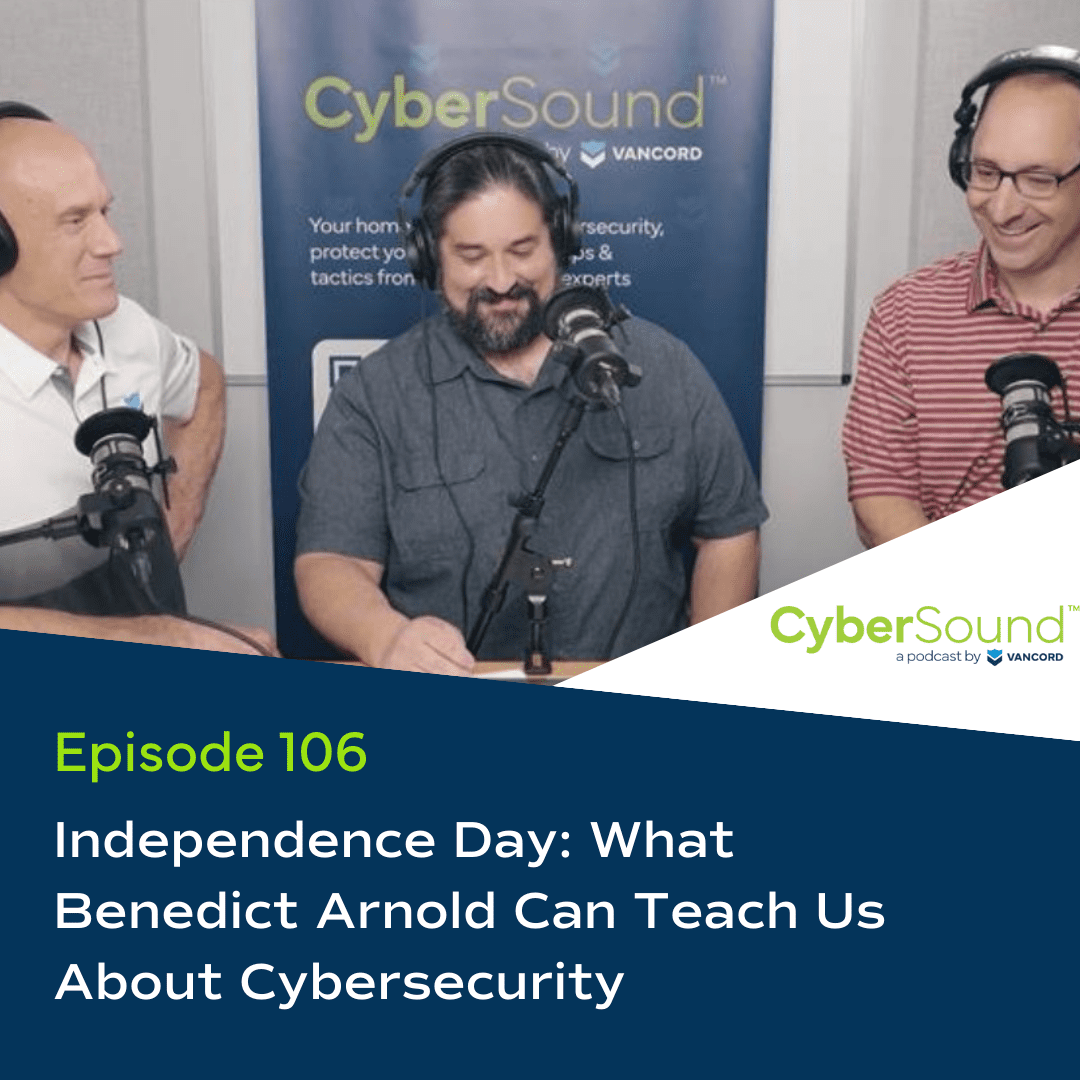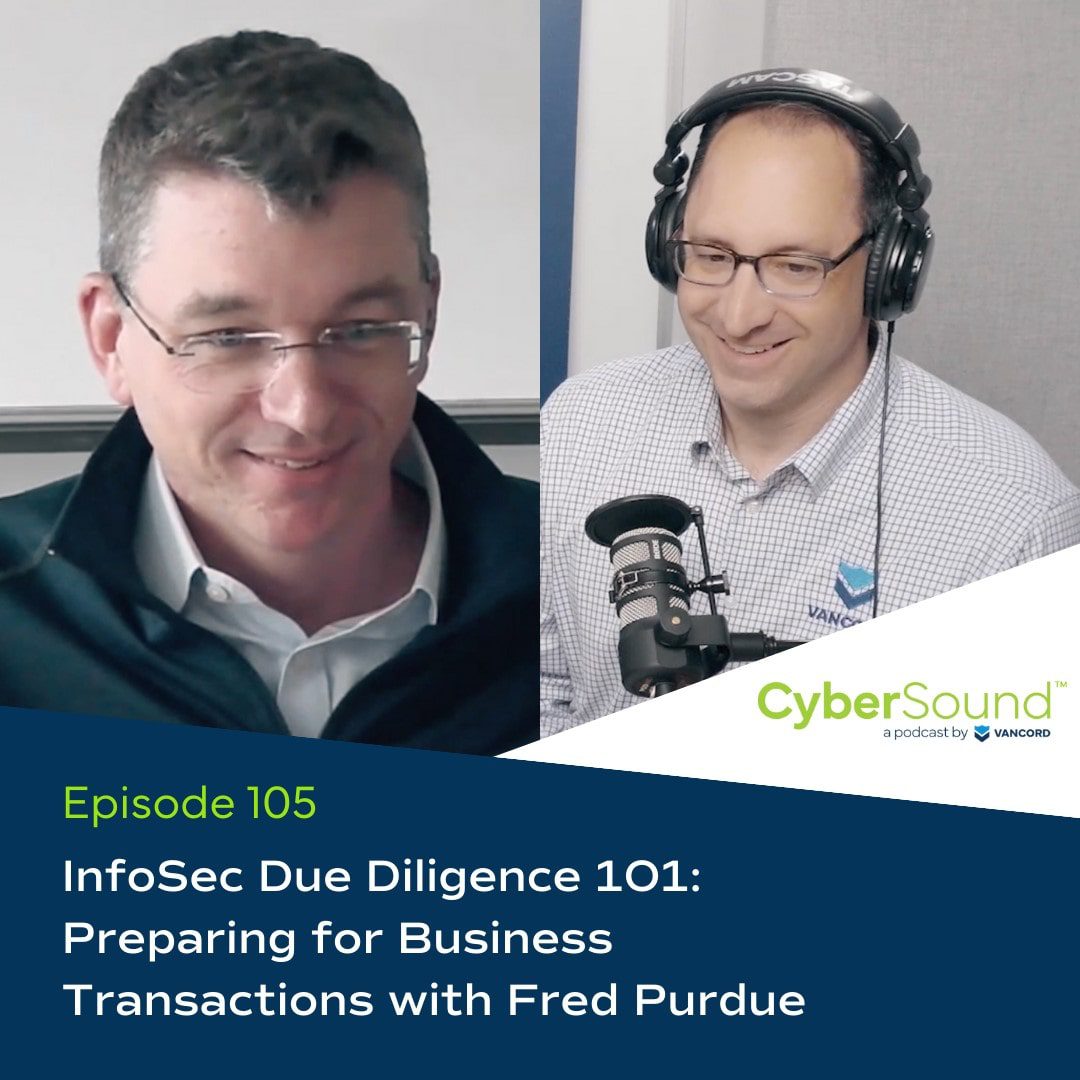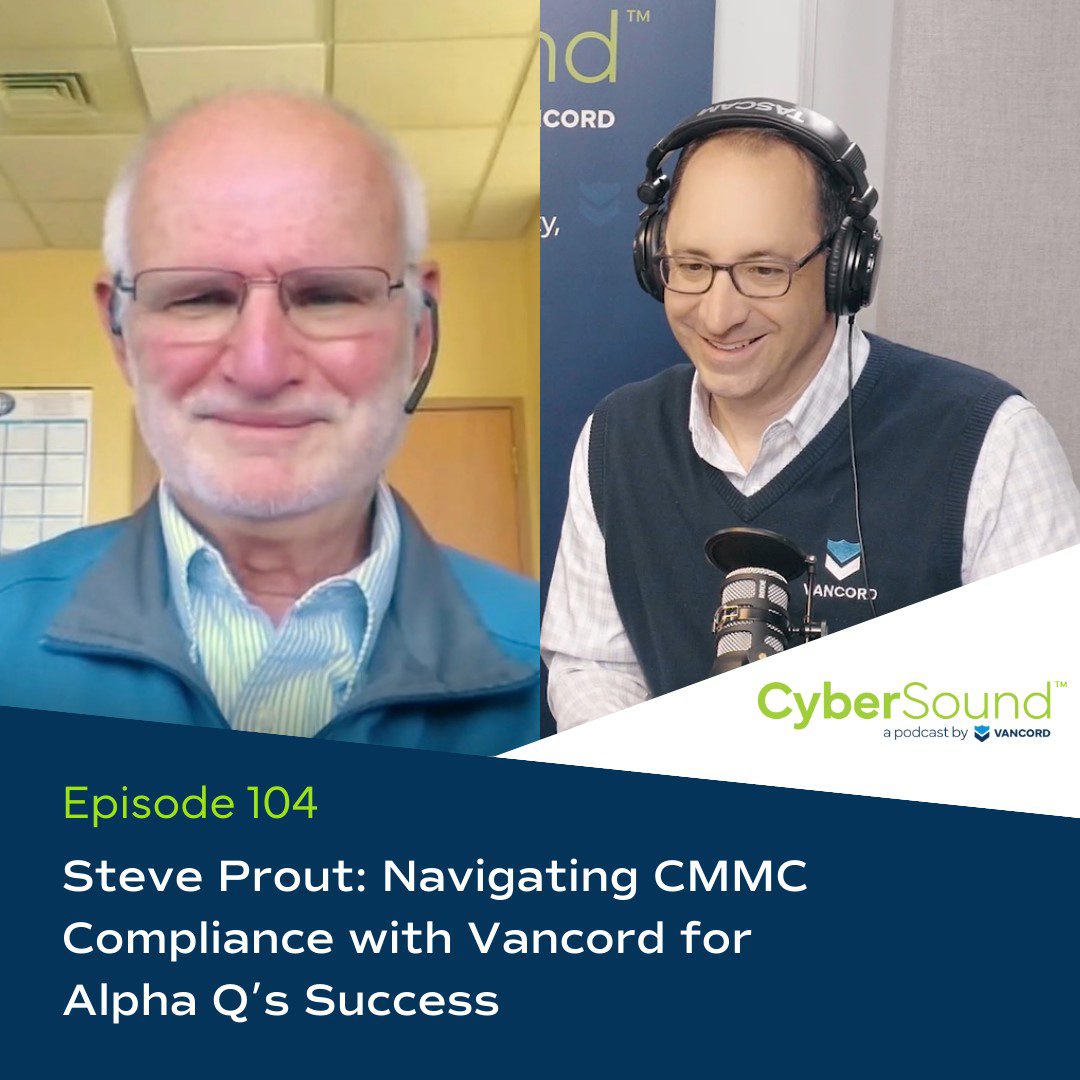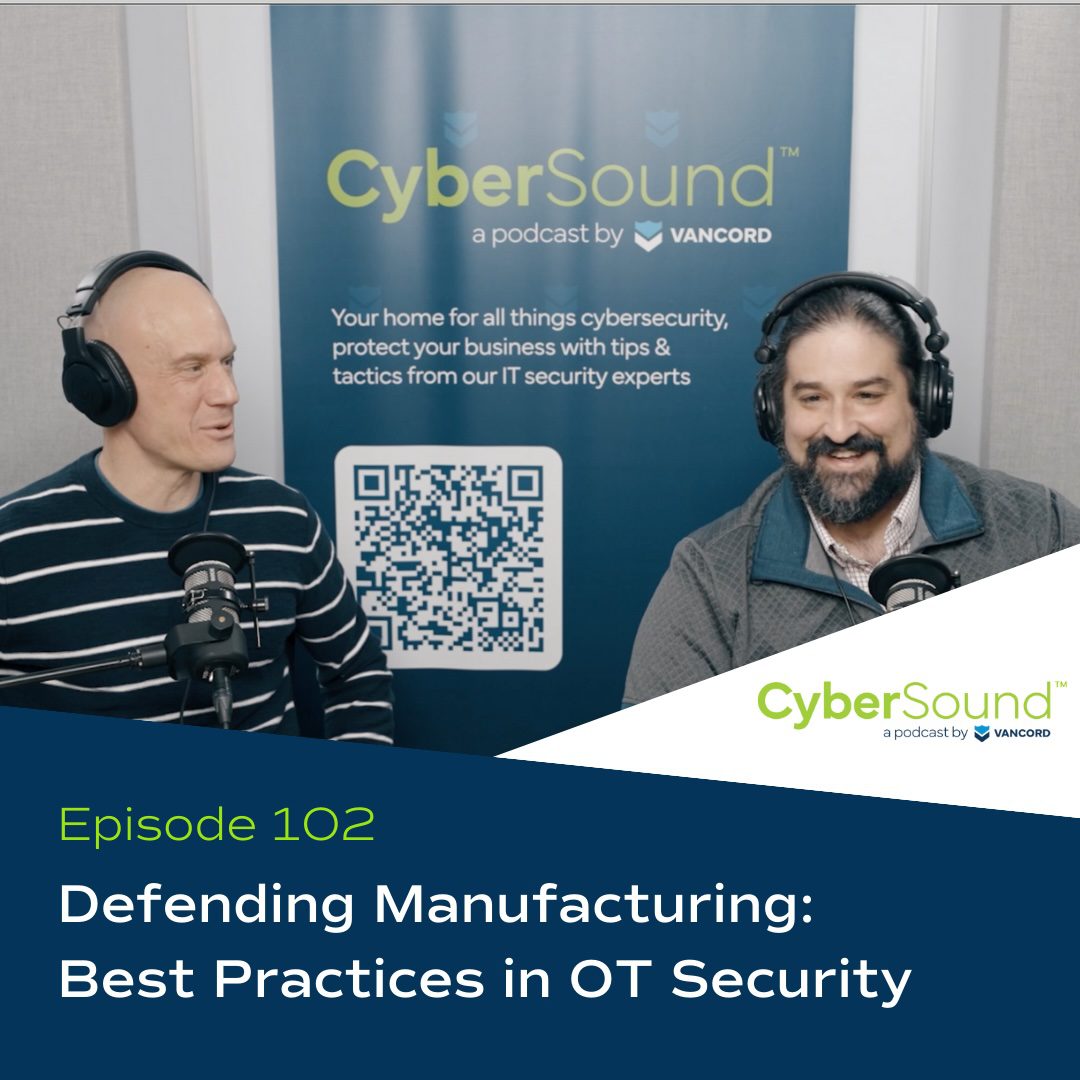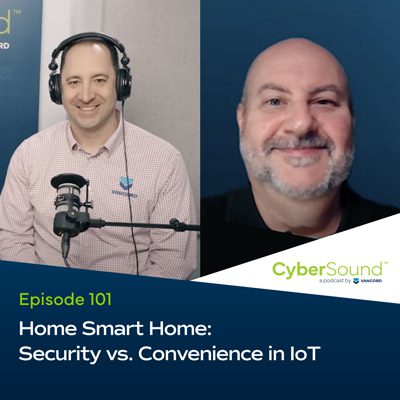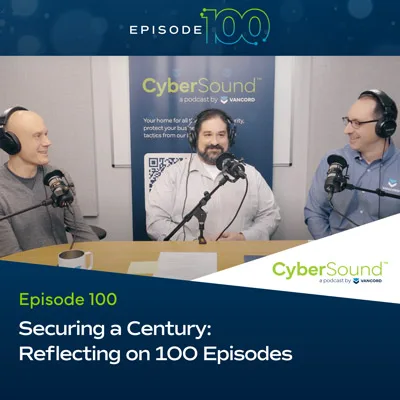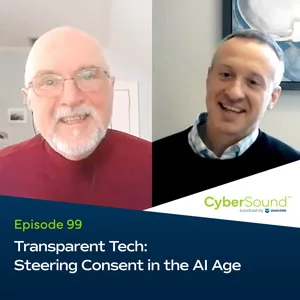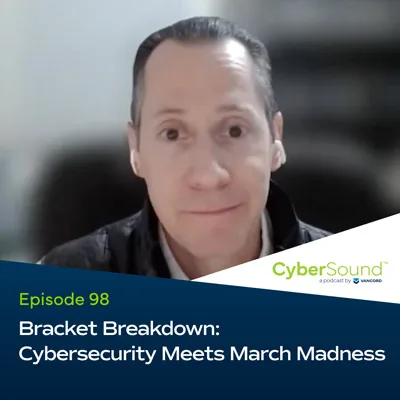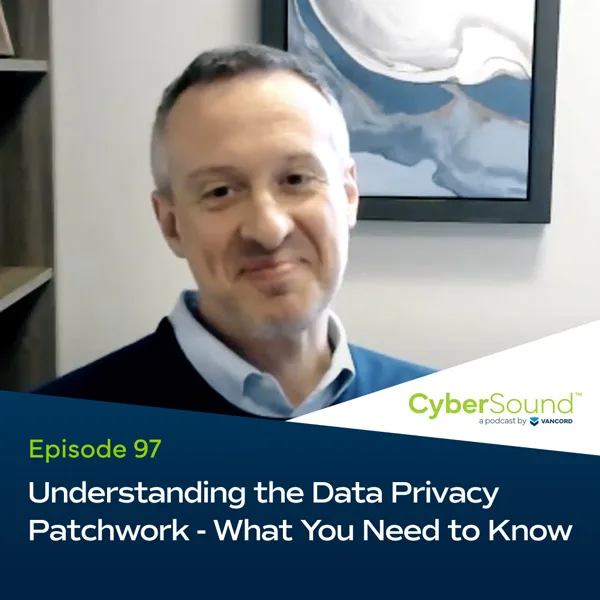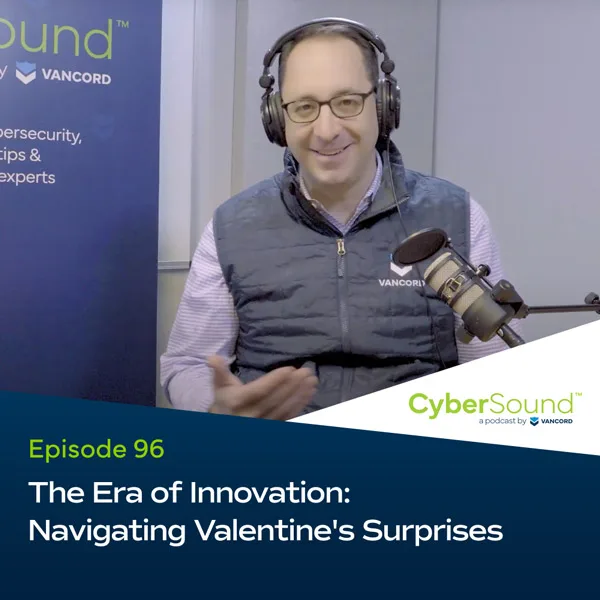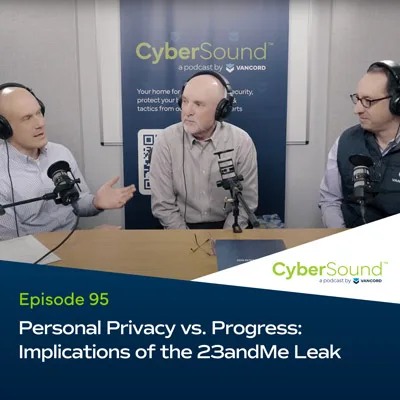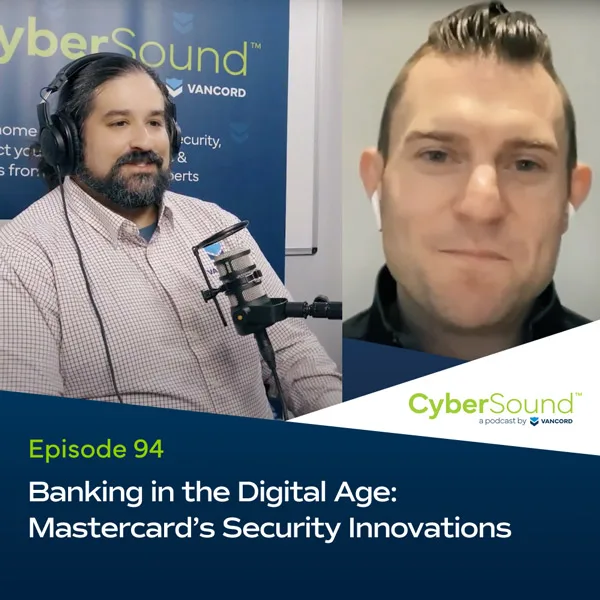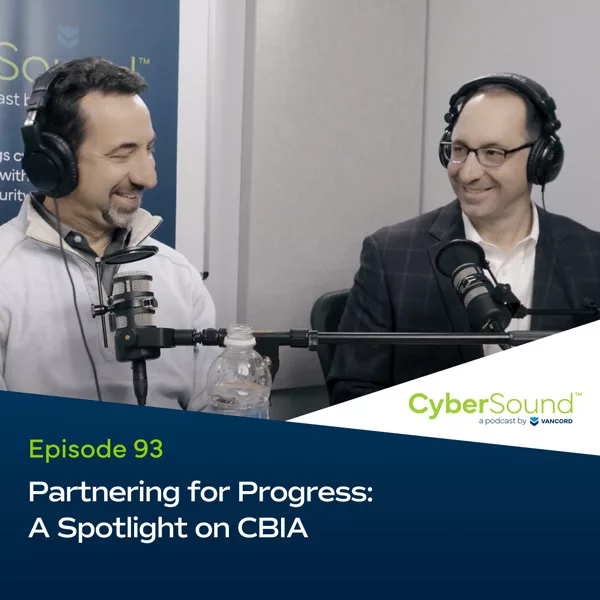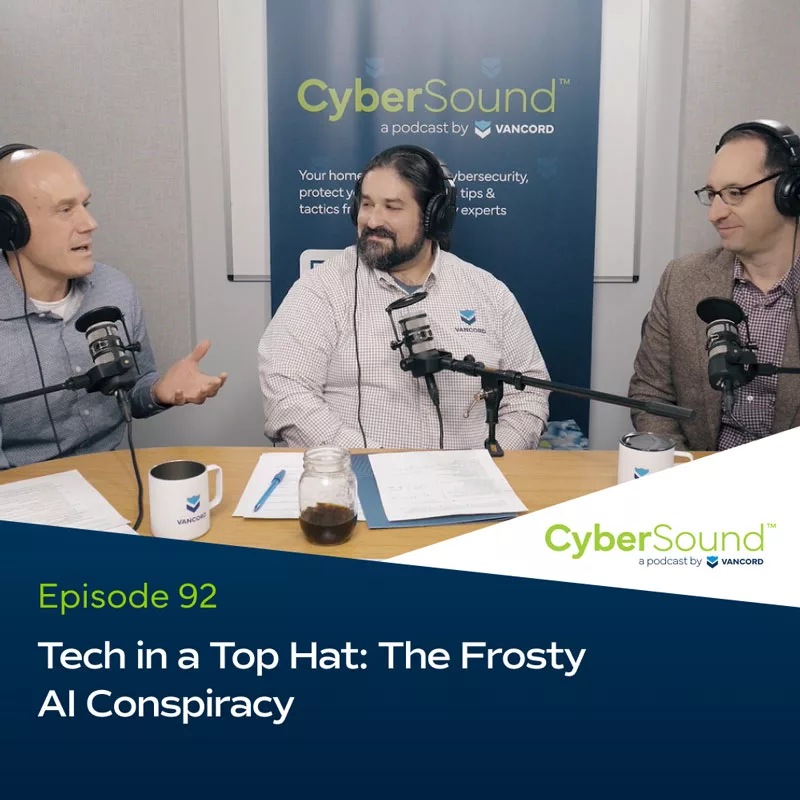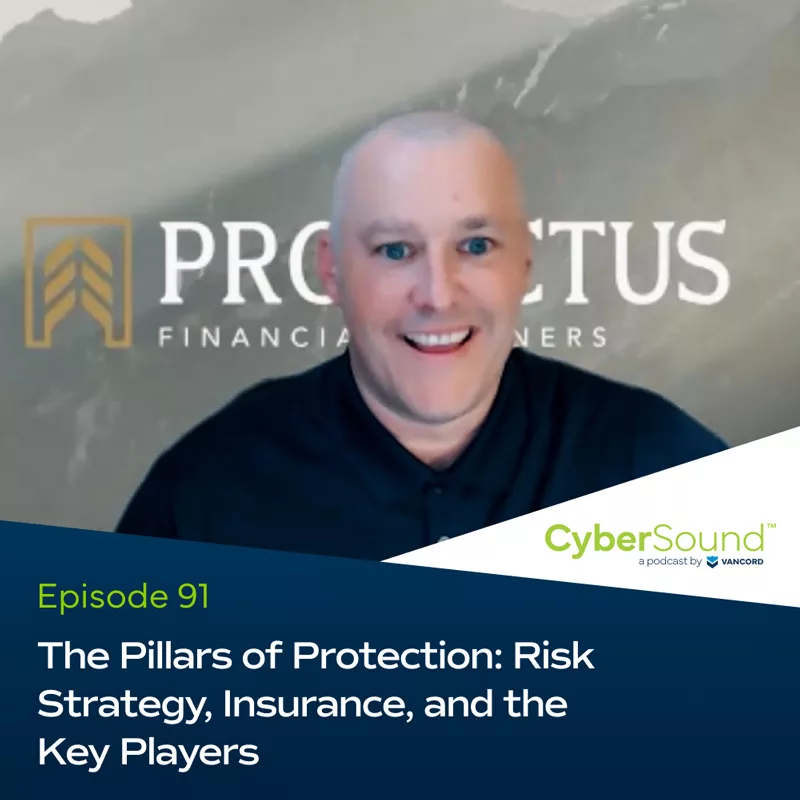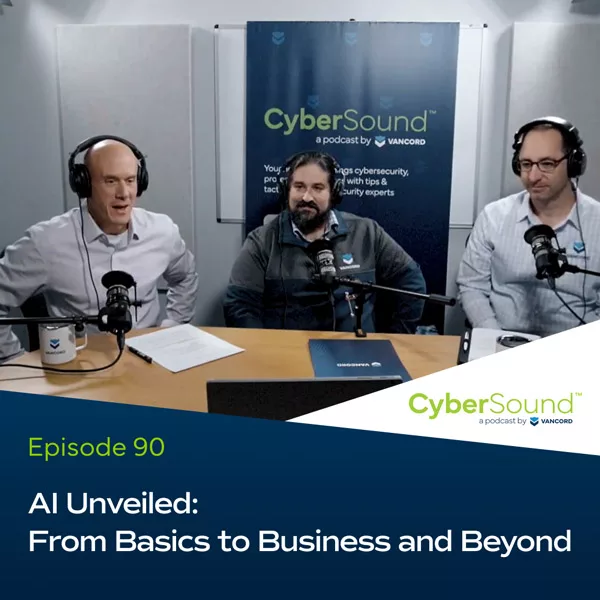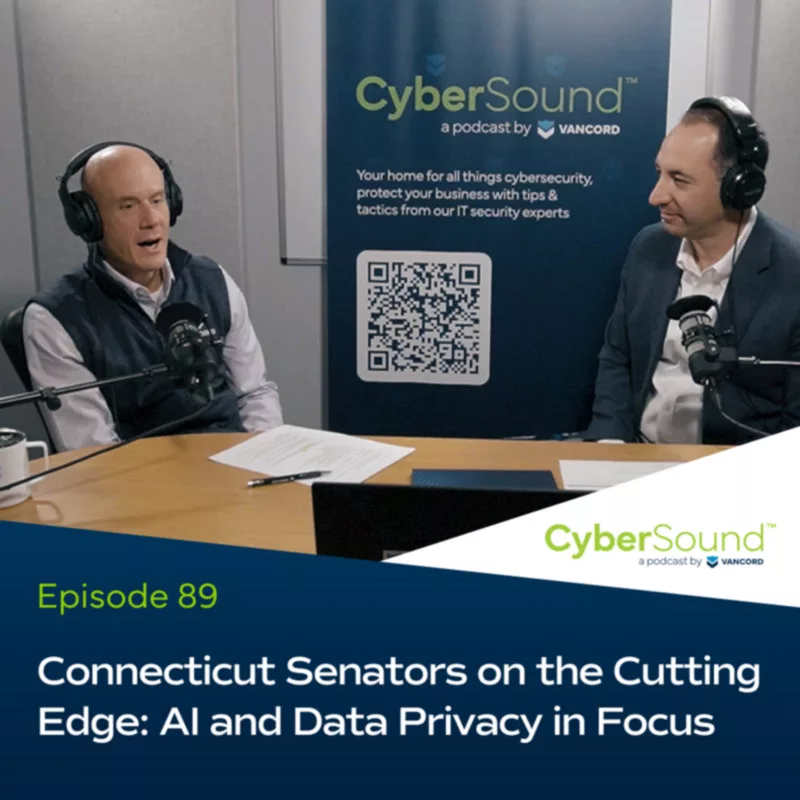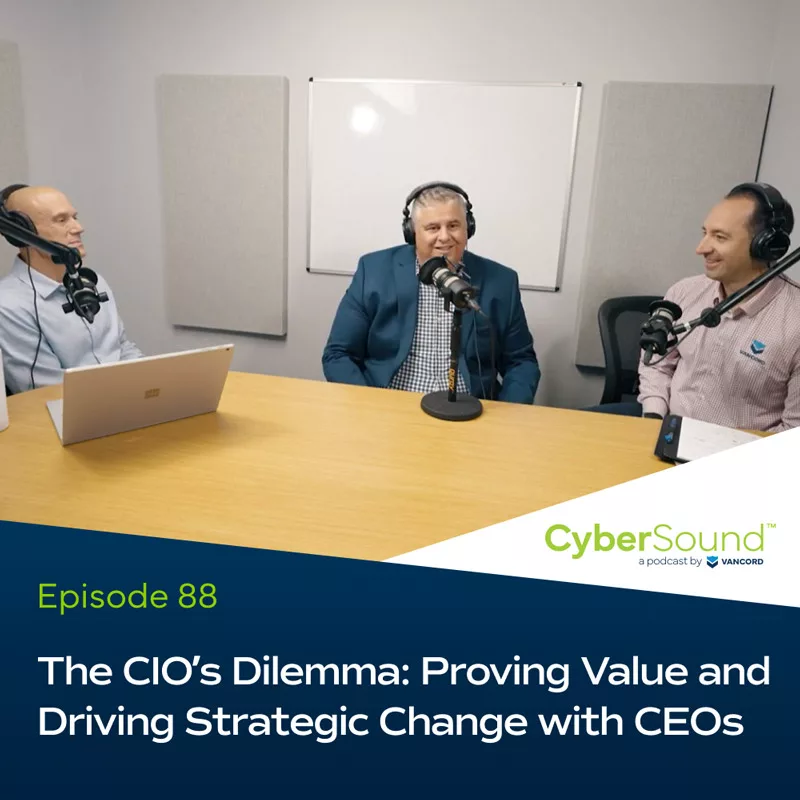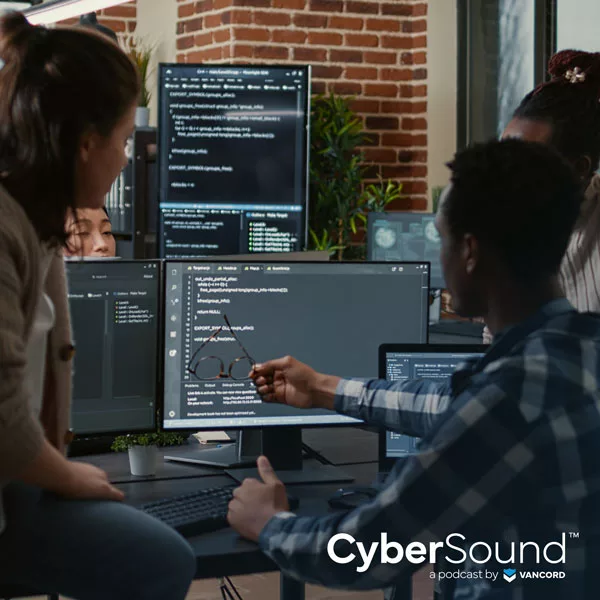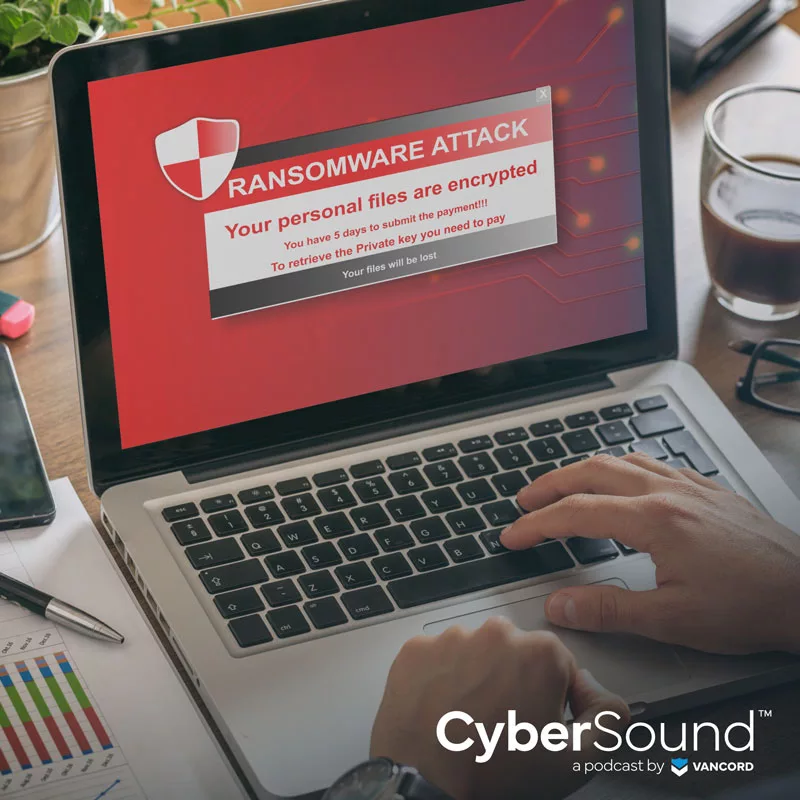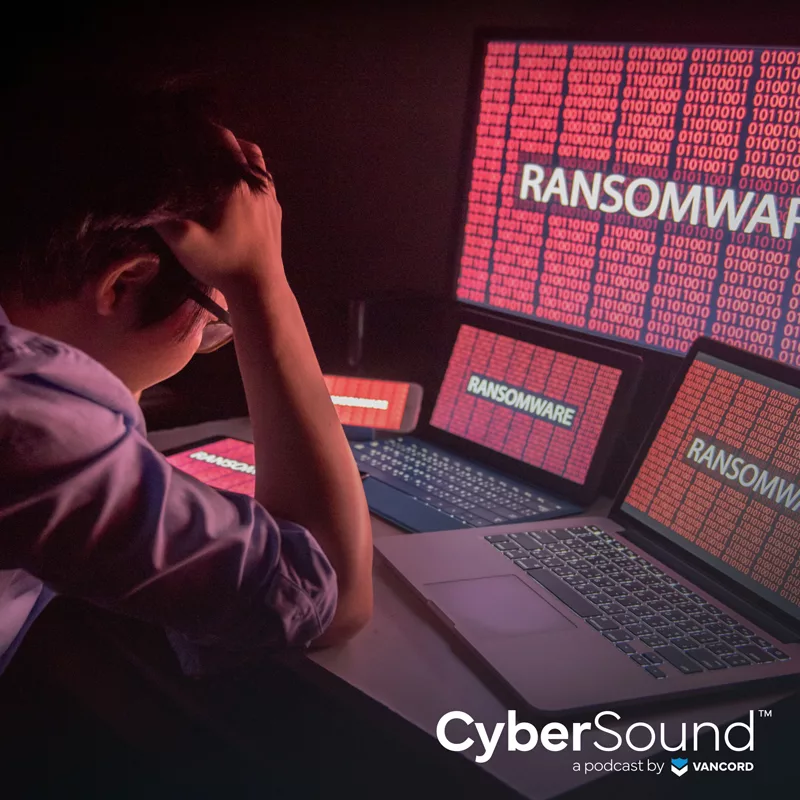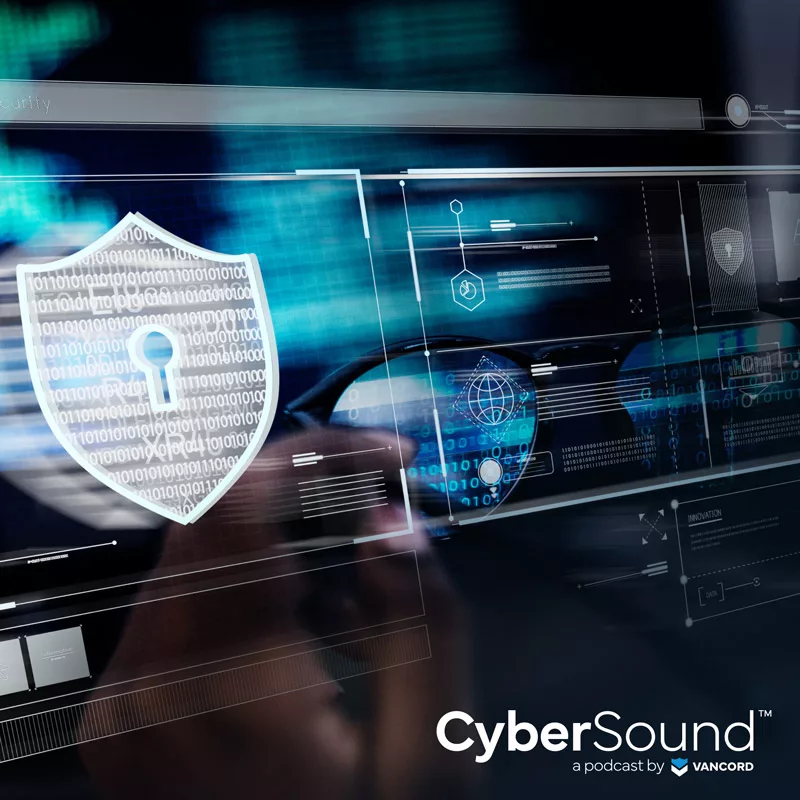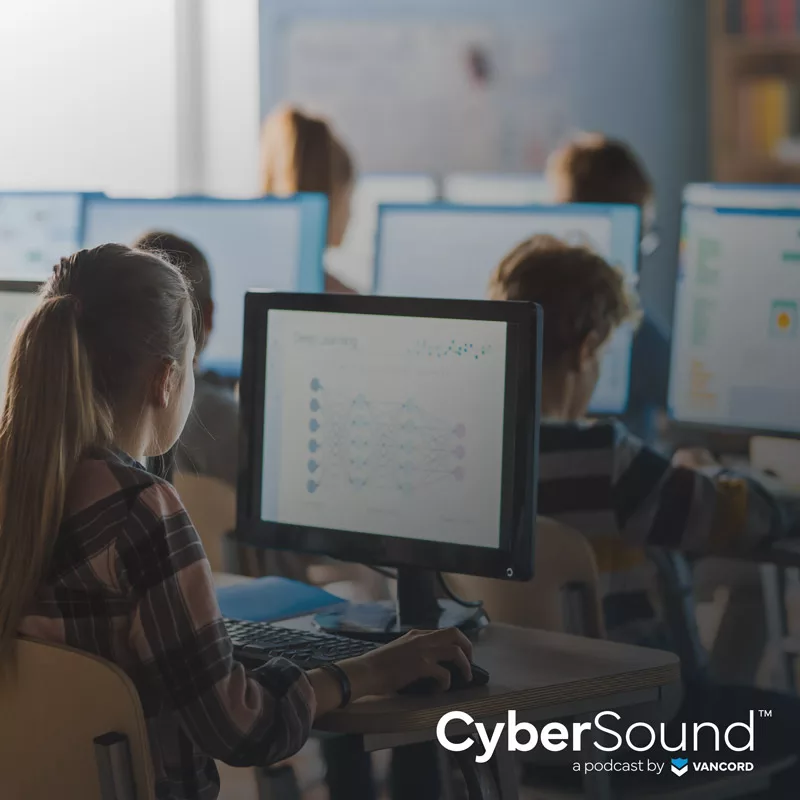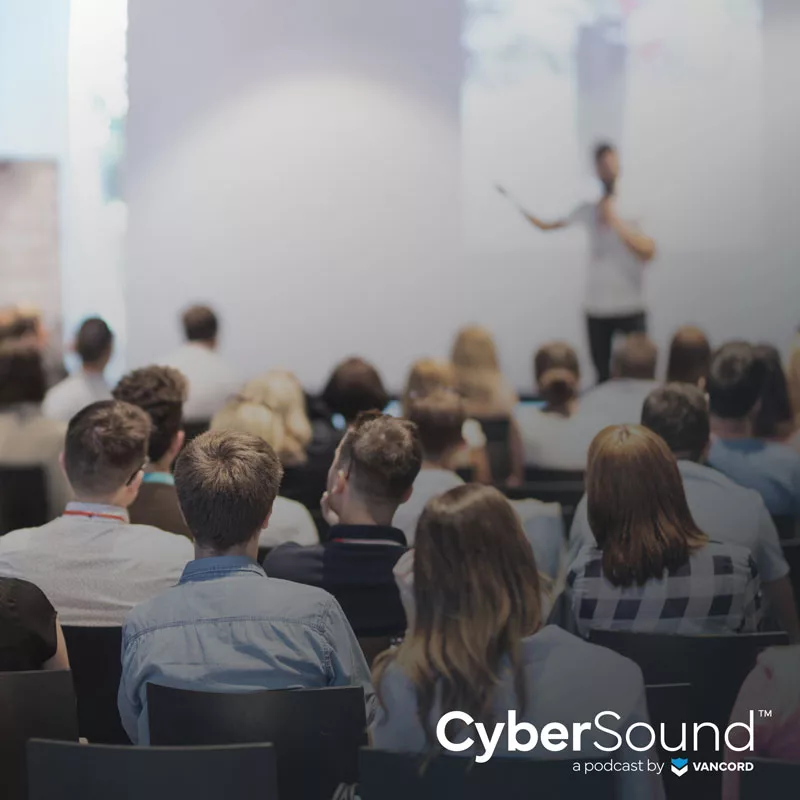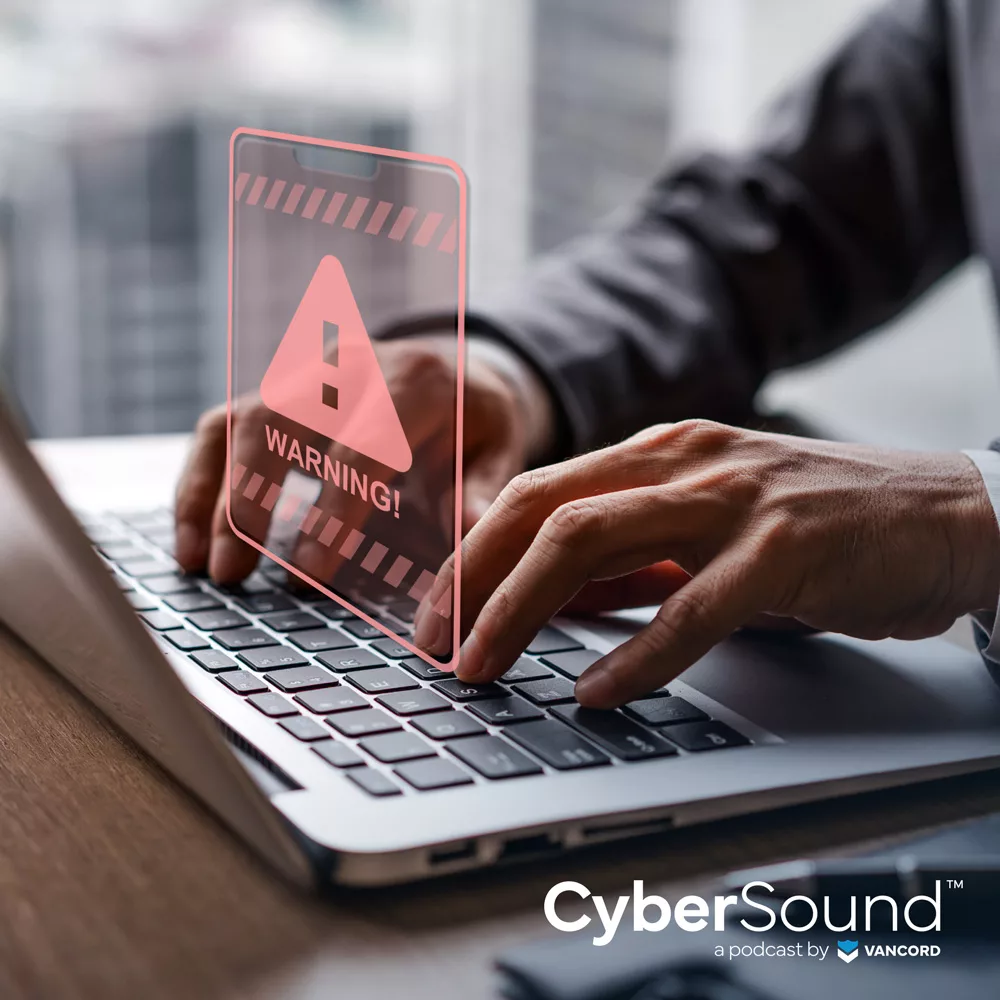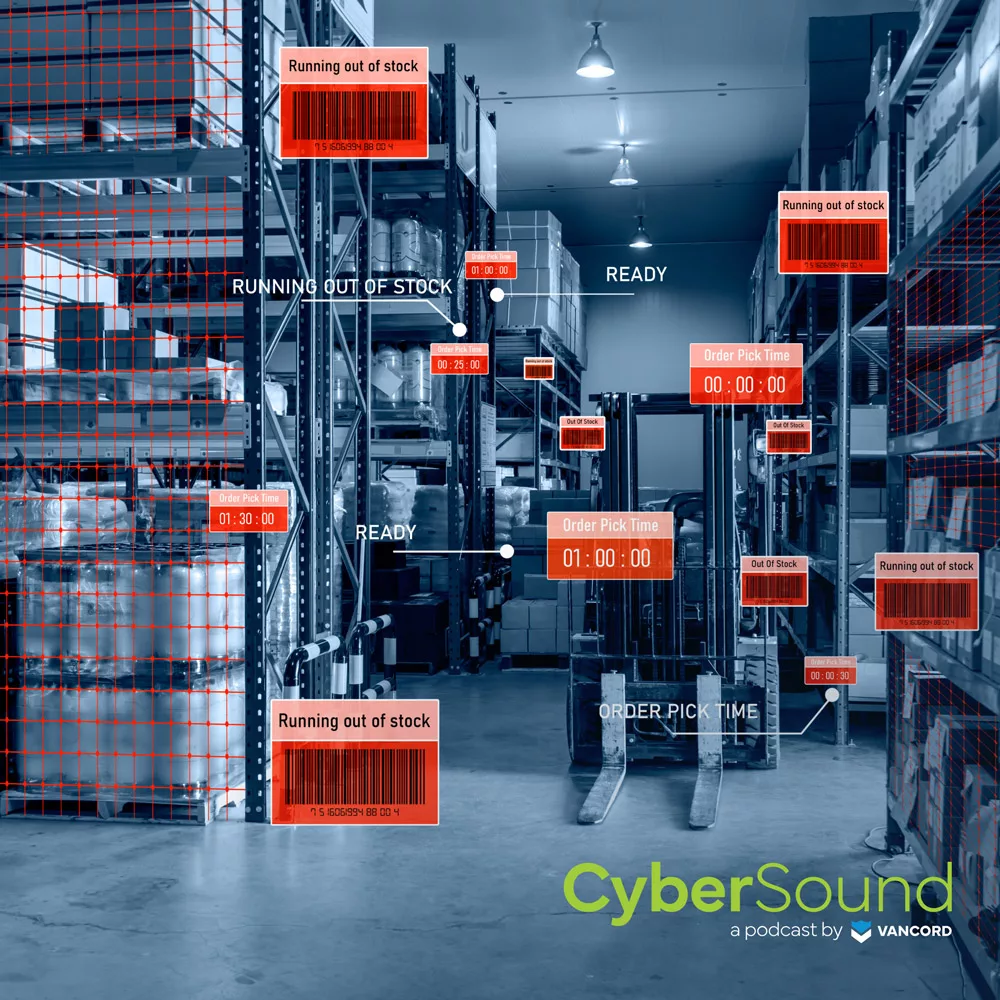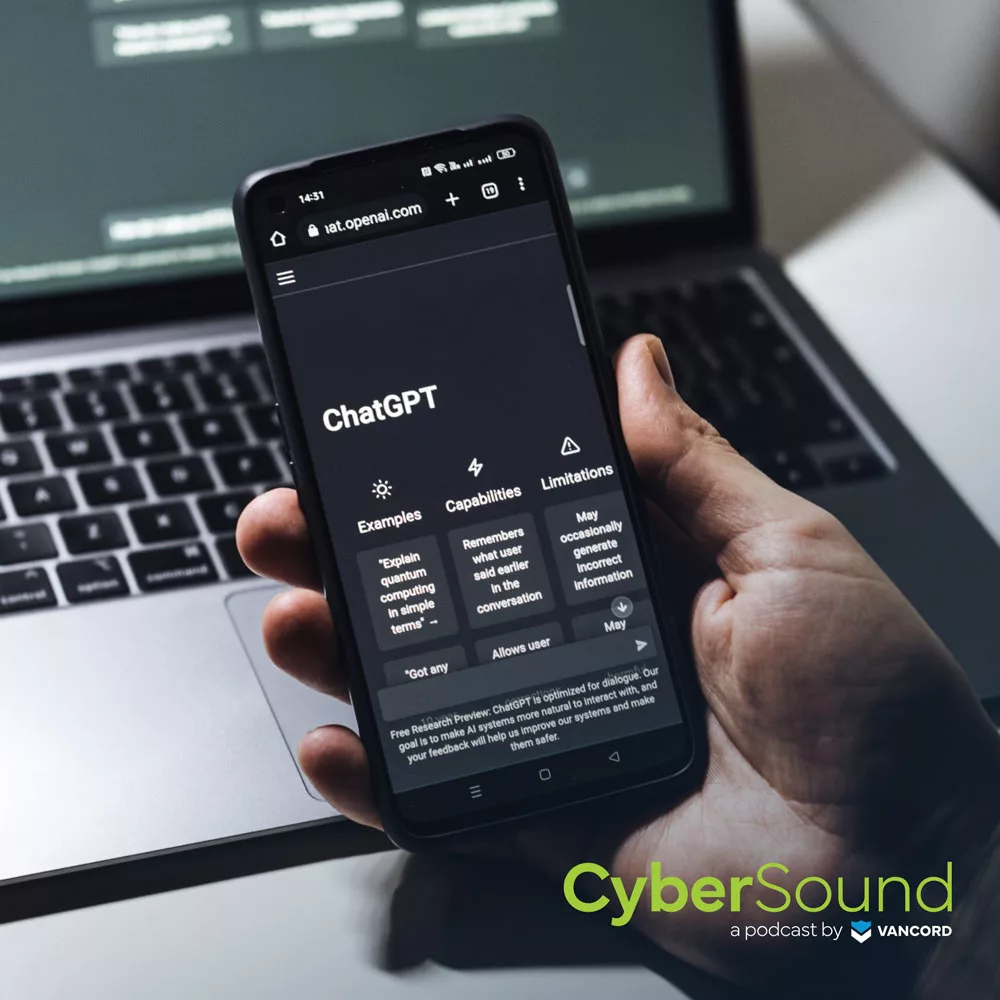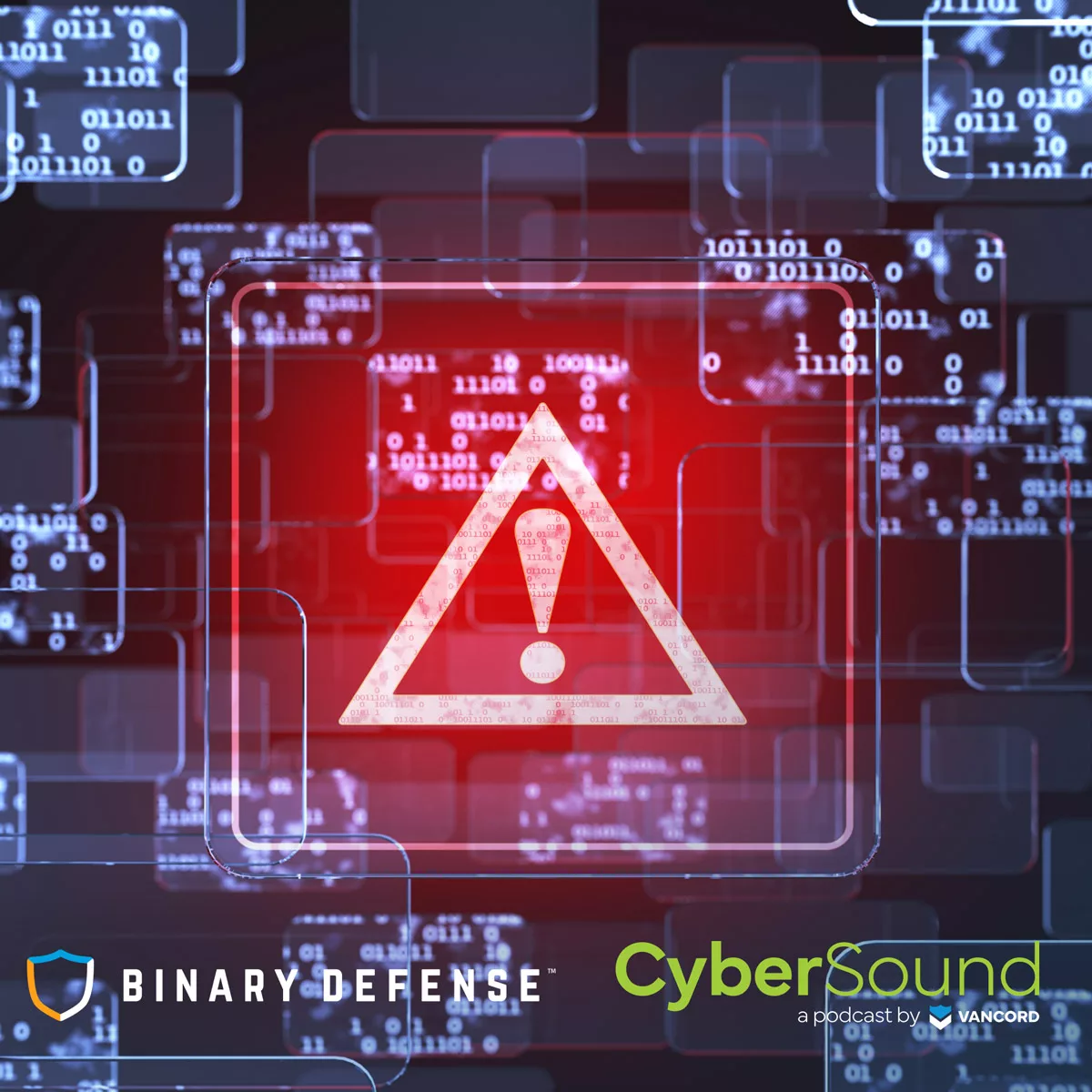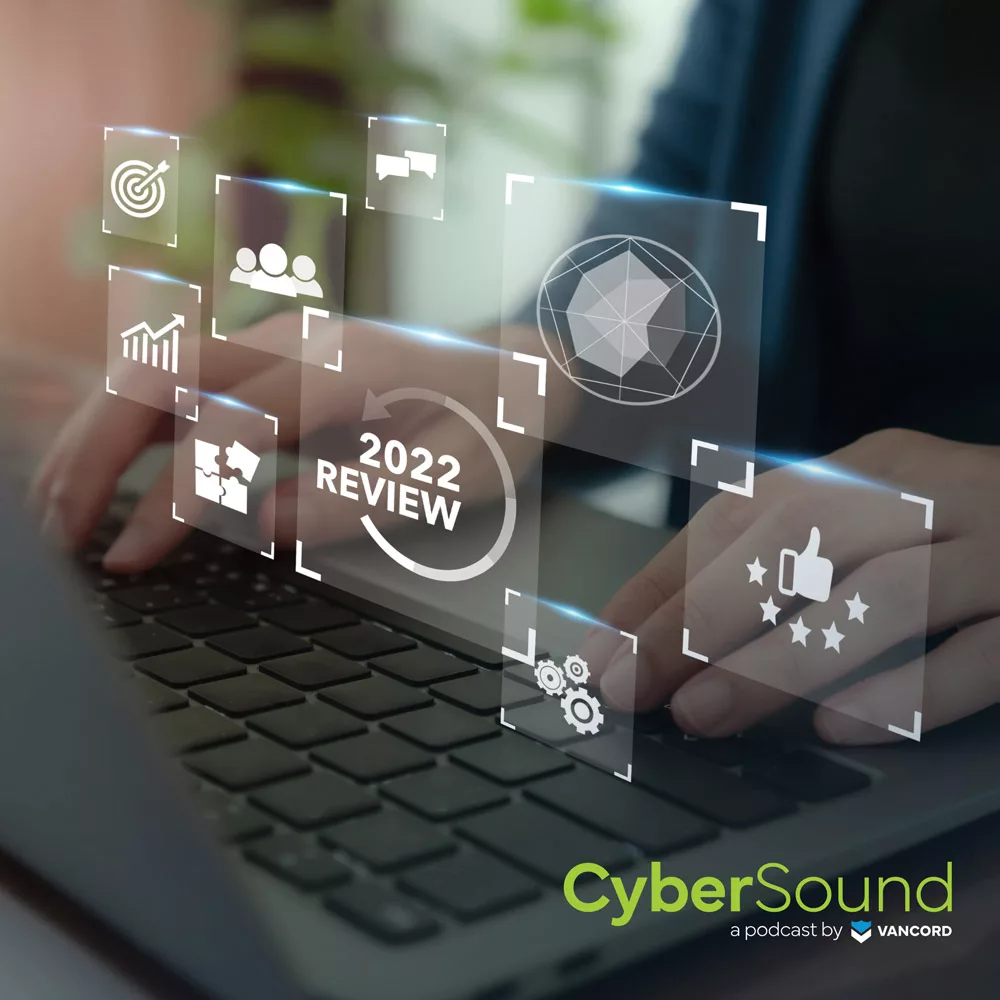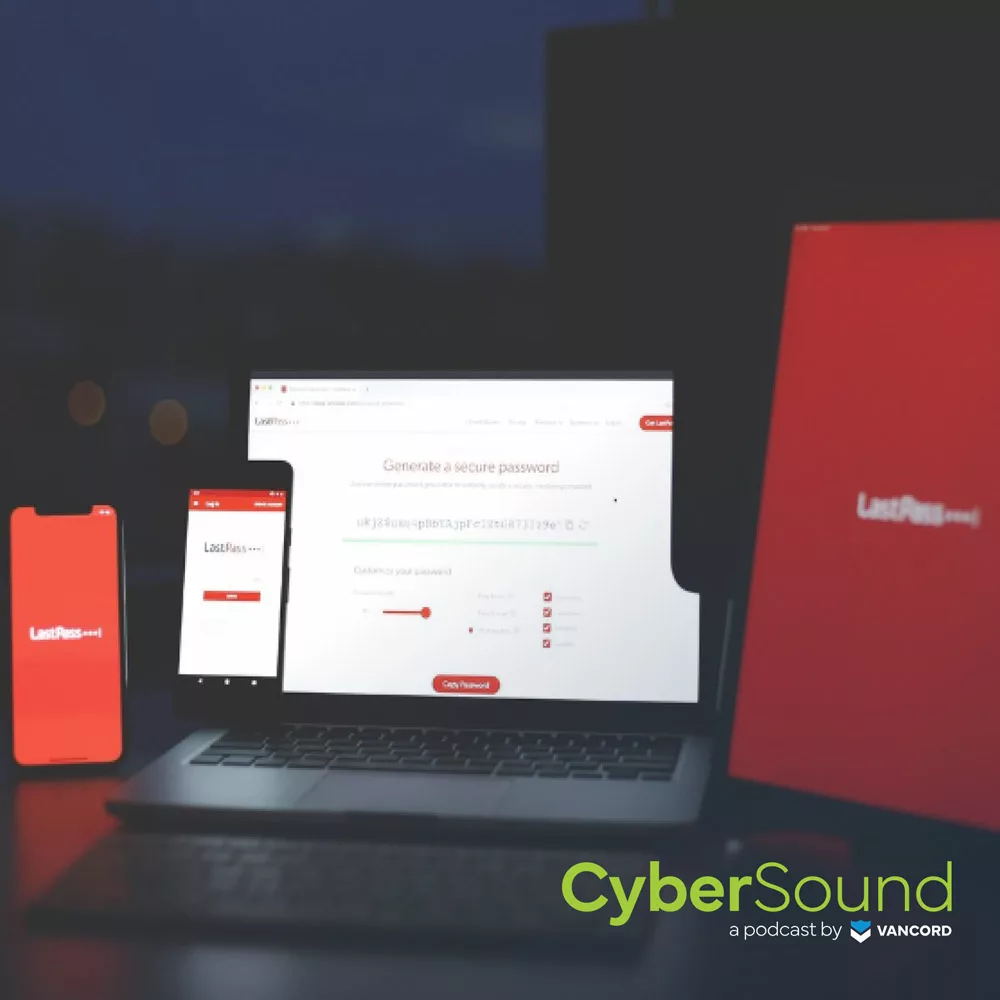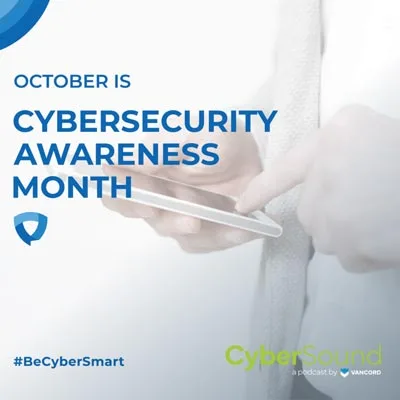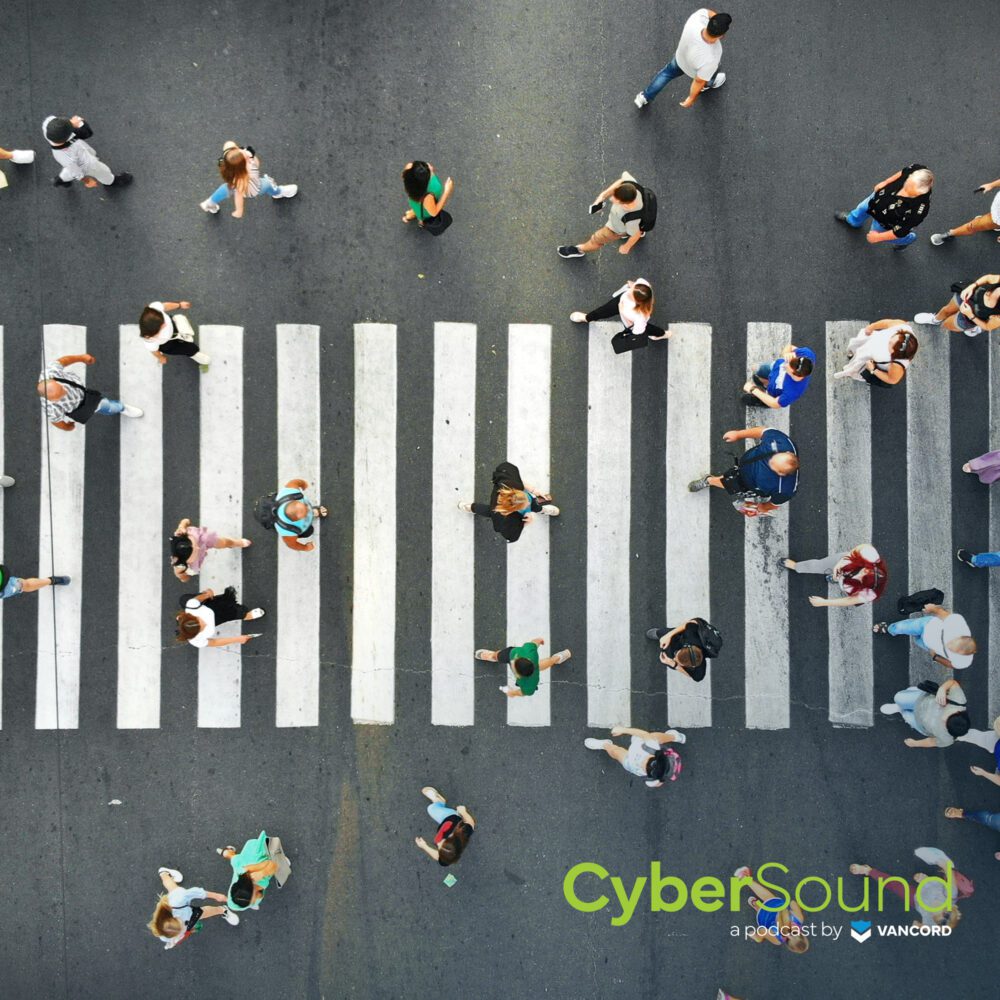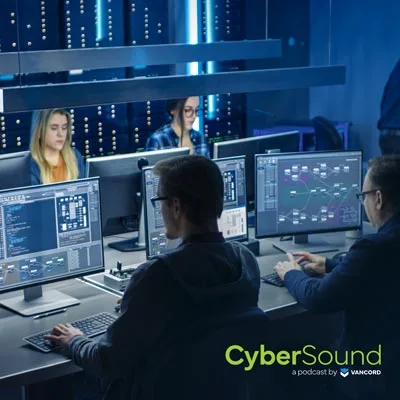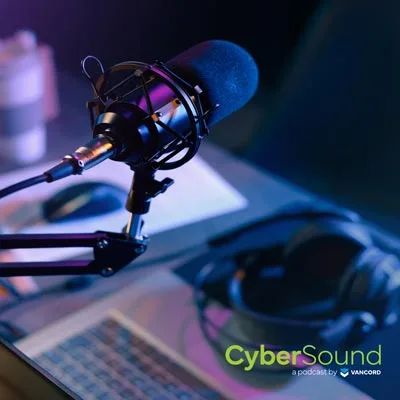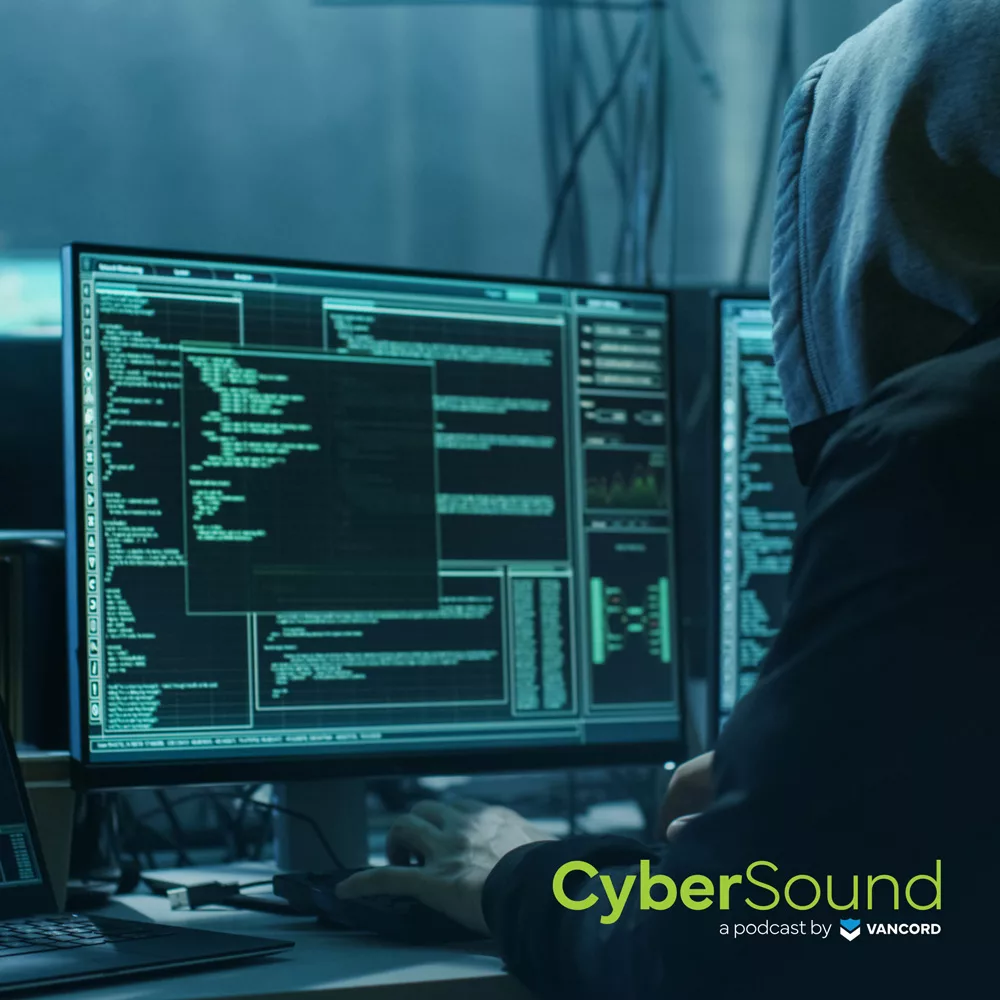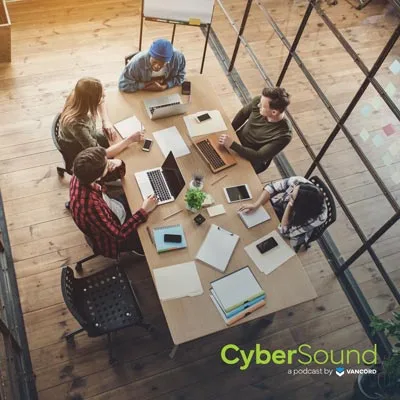Episode 137
Listen to this episode on
Episode Transcript
Speaker 1 00:02
This is CyberSound, your simplified and fundamentals-focused source for all things cybersecurity.
Jason Pufahl 00:10
Welcome to CyberSound. I’m your host, Jason Pufahl, joined today by Michael Grande and Steve Maresca virtually. Hey guys. Hey there, and you know, we’ve got a, we’ve got a real special guest, because we got Eric Levesque, who is the owner of EDL creative, and I’ll say the creative mastermind for all things CyberSound. I think, I think, honestly, since, like, episode, it might have been episode one, I don’t remember if it was episode four.
Eric Levesque 00:41
I think it was in the tens. Yeah, it’s been a long, we’ve gone through a lot …
Speaker 1 00:02
This is CyberSound, your simplified and fundamentals-focused source for all things cybersecurity.
Jason Pufahl 00:10
Welcome to CyberSound. I’m your host, Jason Pufahl, joined today by Michael Grande and Steve Maresca virtually. Hey guys. Hey there, and you know, we’ve got a, we’ve got a real special guest, because we got Eric Levesque, who is the owner of EDL creative, and I’ll say the creative mastermind for all things CyberSound. I think, I think, honestly, since, like, episode, it might have been episode one, I don’t remember if it was episode four.
Eric Levesque 00:41
I think it was in the tens. Yeah, it’s been a long, we’ve gone through a lot of iterations.
Michael Grande 00:48
He’s listened to a lot of podcasts on a variety of subjects, and I’m sure a few subjects that he wishes he never had to learn about.
Eric Levesque 00:56
Yeah, and I’ve actually learned a ton on this podcast. And it is, actually very awkward to be on the other side right now.
Steven Maresca 01:04
You suffer with us in the overheating room as well. Yeah,
Michael Grande 01:09
Great point.
Jason Pufahl 01:10
And overheated room. Yes, sweating in the corner. So and essentially every you know, everything that anybody heard or seen, certainly seen has been a result of your engineering, and you’re taking a room that is definitely not designed to be a studio and trying to turn back to a studio. So we’ve appreciated that for sure.
Eric Levesque 01:30
Well, I appreciate you guys too, easy to work with. We always have a good time.
Jason Pufahl 01:34
So in fairness to Eric, we did ask him to be on the podcast about 60 seconds ago, because we, and he’s a good sport, and said, you know, it’d be fun to do. So we, we created it actually, we, I’ll say Steve was, did all the work for the recent, you know, fully AI generated podcast. And when we were chatting a little bit about, you know, sort of what it took to put to put to put that together. And I think Steven probably be worthwhile spending a second on on that. I think just to give people clarity, sure, we also then kind of really, really discussed how AI has been in influence, or had influence on the work that you do on a day to day basis. Eric, so why don’t we do this? If, maybe, if you can introduce yourself for a minute and just a little bit of background about who you bit of background about to who you are, what your company is, and then we’ll sort of segue
Eric Levesque 02:26
Yeah. So like you said, I run EDL creative, which is really just me specialize in video production, and I do kind of any kind of project from like small, one man band type things to big, like television commercials with 20 person cruise kind of adjust myself to my needs of my clients, and that’s kind of worked for me over the past, going on little four years now that I’ve been on my own doing this, and like I said, running the podcast with you guys is one of my favorite things that we do every month. But, you know, working alone, you know, I hire people on set and everything. But other than that, I’m by myself. So, you know, some of these AI tools are just really beneficial, like, even just going to, like the good old ChatGPT, you know, if I have to write proposals, if I have to write even some concepting, it’s like, if I worked at an agency, I would have a junior copywriter or copywriter. I’m not a copywriter, so I can, you know, I can use ChatGPT to kind of kick me off. I would never, I would never take that and just give it to somebody, right? Like, write a script on there and just pass it off, but kind of like, get me started a little bit, get the juices flowing. Like I said, I’m a one man team, so I’ve got to kind of do it all my own. So all of these tools really supplement my day to day, you know? And it’s really, really beneficial. Aside from ChatGPT, we talked about some of the voice cloning technologies too, and where I can’t fabricate, you know, what somebody says, but if I do an interview and someone kind of flubs a very important line, like, if we’re if we’re doing a bank story and they’re talking about a 5% interest loan or something like that, and they flub that line, And we didn’t notice it on set, I can kind of go in, clone it, reef, you know, fix that line. You know, little things like that on set, audio, the audio tools now that, you know, are kind of coming bundled into all the softwares I already use, but you can, you can film or record an interview in a very loud, noisy room, and as long as your microphone is close to the person that’s talking, you can take out all of that noise. So it really, you know, where I can’t have the budget to hire a great sound guy all the time, or secure the perfect location, or, you know, things like that. It really kind of helps, you know, streamline the process, keep me busy, keep my clients happy with fair budgets. And it’s just really helps, really helps every day. It’s something I use, and it helps me stay in business and help keep people going.
Jason Pufahl 04:52
So, yeah, it’s cool use it’s cool use cases. Because I think I feel like whenever we talk about it, it. Feels a little bit more mundane than that, like it, you it really feels like you’re using it now in a way that saves a little bit of money but allows you to really augment your staff, which is what everybody always talks about with this, right? Like sort of mimicking that it’s really practical, straightforward use cases that aren’t that aren’t wildly technical, necessarily.
Eric Levesque 05:20
Yeah, and, you know, it’s, you got to be careful with it too, because I don’t want to, like, put myself out of a job, right? You know what I mean? Like, there’s certain things that it can do, you know, you get a little worried in certain things. I worry about people in the voice industry, because if I don’t have a budget, then I need a 10 or 32nd VO, like, I can generate that really good version of that, you know, and that I do feel, I do feel, I do feel for the people in some of these industries that could suffer. But I think, like, I stay in real, you know, I, most of my work is for businesses that want to tell their stories so authenticity and real people, real events, real things, that’s not going to go away, and for me to capture that is good. But when you need to fix something, you know, or streamline a process a little bit, the tools come in very handy.
Jason Pufahl 06:06
So Steve, if you could spend a minute on what you did to create that last podcast, because that’s certainly a heavier duty way that Eric’s doing in terms of 30 seconds.
Steven Maresca 06:19
So this because we haven’t been exactly direct about it. This is the time to own up for those that didn’t notice. The last podcast was about open AI Sora two, which is a video generation model that they use and have launched the social platform for please see that for the actual content discussion, but at the end, we revealed that the entirety of it, including my voice and Jason’s voice, were 100% synthetic. This is the sort of thing that we have talked about in the context of risk, right? The types of things that we addressed in that podcast, than in prior about, you know, millions of dollars truly being lost due to fraud and deep fakes and things of that variety. However, the backstory everywhere, up until recently, has been, oh, that’s not possible. The average criminal doesn’t have the capability and what have you I talk with clients very regularly where they’re still trying to catch up and understand and I wanted to have a demonstration. So last month, Microsoft released a platform called vibe voice, and immediately took it down, because while it wasn’t structured in its release to enable voice cloning. It was extremely trivial to enable that. I happen to have a copy from before they took it down, and helpfully a clip of Jason speaking and with a little bit of moving things around, it’s extremely easy to spend on a 10 Minute, 15 minute podcast. So that was demonstration, and that now I think we should talk about the implications, because I think what were your reactions overall?
Michael Grande 08:08
Well, I was gonna say, Should i i Just like this? I’m a real boy.
Jason Pufahl 08:16
Now, okay, you know, so I mean, I’ll say, I’ll start. I thought it was great. It certainly sounded very realistic. I think the only tell for me was it just felt a little bit more, maybe more structured than we normally are, right? I want to say robotic, because it certainly sounds just like us, but it has the cadence isn’t probably like we normally,
Steven Maresca 08:44
Less conversational, that’s all,
Michael Grande 08:46
yeah, but that was it. I was amazed at the randomness of some of the sounds and the in the modulation of the voice to make it seem like you move closer to a microphone and back from a microphone. And some it was like the realness of that aspect, and the fact that the tone of your voices, and mostly your cadence and how you speak, and the normal sort of temperature and the volume it was that was, it was amazing and scary and all of those you had us
Jason Pufahl 09:26
You had me reading, I’m assuming you did the same for you, where we read the boy who cried wolf paragraph, so that you would get some of the voice nuance and be able to feed that in. But you could have taken the video that, or the audio and video that we created over the last four years and used some of that.
Steven Maresca 09:41
I absolutely could have I took a shortcut, because that particular passage has all of the components of English speech that are meaningful to reconstruct, trigraphs, digraphs, vowels, consonants, all the relationships between them, the transitions, pauses, gaps. Is hard consonant, soft consonants, you name it. I have a small linguistics background, and I wanted to borrow from that in this context, and it was very useful just to have a paragraph to tee up. Now I do, candidly hope that I’m going to delete those clips and then not use them again, but it is extremely useful to demonstrate how straightforward it is. Because I’m not doing this on exceptional hardware. I have a an unusual intersection of skills that allow me to do this as a single individual, a team of, you know, dedicated attackers would not have this be a very difficult hill to climb the useful aspects that Eric’s articulating. They’re still all real. Of course, they are. This is a situation where we are surrounded by double edged swords, and occasionally they can be wielded for negative outcomes here, I hope it’s been a useful sort of case study or demonstration for others that show we’re not really being in any sort of high sophistication, but it shows what could be done in the hands of someone who might do harm.
Jason Pufahl 11:14
I’m curious, when we did the podcast, right, Eric, it was your idea to sort of put the still image in there. It was certainly your idea to sort of construct the idea that we had some video video issues. But ultimately, it’s an audio based podcast, and I’m wondering, are we, are we at a spot where it feels like we can construct sort of reasonable video simulations at this point, like, you know, could that have been, could that have been video based podcast with, with all the content that we generate that four years?
Eric Levesque 11:52
I think it certainly could be. I’ve seen, I haven’t used them because, you know, that’s something I don’t that’s where I really feel, I’d be a little defensive about it, but there are things out there. I don’t know how well they would interact together, but in a in a podcast where we’re all in a different room and we’re just talking to a screen, I could see that that that working. You know, because you can, there are apps on your phone where you can take a picture of yourself, it can clean it up, and then it can bring it to life, and you can make it say things, and all that. It’s I haven’t played with those. I probably will end up playing with them at some point. But, yeah, I don’t we probably could do that. We can probably do that. We can sneak one of those in and see if, like, kind of Easter egg, maybe the viewers will find something in the future. They’re like, they’re going to be on their toes, like, I don’t know, you
Steven Maresca 12:38
know, right now, it would be a bit of a lift. Let’s Yeah, just make sure that’s understood. But it’s months. I mean, the models that are coming out right now to do this on commodity gear are exceptional. They struggle at long form content, which is actually true of any voice cloning tools as well. This is what I use. Was uniquely built for long form, adherence to a tone and the input voice. The video models are really good at short clips, not extreme length and continuity, something with a lot of cut scenes, transitions. Oh, it’ll work beautifully. But there’s probably a need to edit together a bunch of different components to make it a cohesive whole that’s a different, you know, kind of a workflow than we have, and I think that’s a barrier at the moment, at least for casual use, for this sort of thing. But my brother in his particular line of work records videos very regularly for his customer base, he speaks English, of course, but they have Spanish speaking audience and companies that need their actual content. Some of the video modification tools that they’ve employed involve completely removing the mouth and translating into Spanish so that it’s appropriate for the audience. And it is fabulous, fabulous. It works entirely within the gesticulations and the tone and the cadence. We are very, very close. That’s an example I’m citing just because it’s a small part of the video, and soon enough, it will be the entirety of it. Yeah. Well,
Eric Levesque 14:21
well, just like with the eye focus, there’s a thing that we’re I’m not sure which software uses it, but you can make it look like we all kind of like look at our screen, so you can tell we’re not looking into the camera. But they have things that will fix it. Make it look like your eyes are looking right camera, yeah.
Steven Maresca 14:36
Just absolutely freaky. It is creepy. Snapchat filters, oh yeah, the little cartoon faces that map your expressions in an iPhone. All of those are precursors to this being accessible to every single person on their device. We’re just on the edge of that, and it’s going to be very. Be very, very interesting.
Michael Grande 15:03
Yeah, I may need some of the AI tools to stiff out Stella, the dog who’s who keeps photo bombing into the scene, only thinking when
Jason Pufahl 15:13
I walked, when I walked her walking. I’m like, This is gonna be our most popular podcast, simply because people love to see a dog. So, yeah, there you go.
Michael Grande 15:20
There’s her, there’s her first appearance on CyberSound.
Eric Levesque 15:23
I mean, you could do it in video, in stills. Now, like you can take things out of the background and stills, and it’s just, it just speeds up these processes that we would do in the past, in Photoshop, take out power lines or take out this person in the back. Now you just, you can’t even tell it what to do and type it in. We used to have this as video editors back in the day, where there was a funny video on YouTube called the edit button, and it was like, kind of teasing clients about how easy they think things are. Do, oh, changes, change your wardrobe, change this, change that, type it in and, and now I’m seeing software. You can actually do this. You can just tell it, zoom in at three seconds, pull that. It’s it’s crazy. And one more point to that, like, Steven, you’re talking about six months from now. Do you guys remember the Will Smith spaghetti video, AI thing and how? Yes, while that thing was, and then a year later, it’s, it’s like, perfect. You know what? I mean? It’s like, how far we’ve come. I will not sleep on any of it. Like, I believe we’re going to be able to do all this, like, way sooner than we all thought we would be able.
Steven Maresca 16:21
To bring the message back to the typical CyberSound way of framing it. These are good tools, but really start to equip yourselves to identify these things or when you can’t, because soon enough, we’re at that threshold, sure we’re talking about a decent proportion of our viewership and audience likely not realizing that that was a synthetic episode. Sorry, everybody, but try to develop techniques for checking, ask, verify. These are the sorts of things that people need to do now. It’s a very interesting world, but that’s what’s ahead of us.
Jason Pufahl 17:00
It’s certainly where I find myself going, always, is the, you know, the potential risk of some of these. But I, you know, I with Eric in the room, I feel like there’s, there is some really interesting opportunities. I feel like, you you, you could have, you know, you’re on site, you’re trying to shoot your commercial with a client, or something like that. You could have the the actors who are there read that paragraph to collect the audio sample, basically as risk mitigation, to be able to say, if something goes awry, I don’t have to bother you later, I can actually, now, you know, address it. So there’s some real positive benefits, I think, to a potential client there. Now, of course, you don’t want to send all those out, because then you have, then yeah, then, then we start to worry, but, yeah, but that’s a neat that’s kind of a neat opportunity for you to say, I’m going to do all this work if something isn’t right, I can act I can fix it, and you, you’ll never be the wiser.
Eric Levesque 17:54
Yeah, yeah. Like in New York City, if you’re filming something in New York City, you’re always waiting on sound because, oh, there’s a siren, oh, there’s this beeping horns. And now it just, like, just go, just keep going. Like, we’re fine. We’ll take it right out and post it. Just seems a lot of time and efficiency across the board.
Jason Pufahl 18:09
Yeah, man, that’s cool. So, you know, I guess I just want to say, I appreciate the opportunity to work with you for the last, really, the last four years, Eric, it’s, it’s, yeah, I think, you know, I’m sure you enjoy, to some degree, sitting through these episodes. I also know you have the lead in and the waiting around, and we’re trying to figure out, like, Hey, when are we going to get the next guy on?
Eric Levesque 18:32
It’s all part of the process. Yeah, it’s always like this.
Jason Pufahl 18:37
It’s made what we’ve done easy. It’s made. I think everything, I mean, everything, just looked professional. I think it always sounds good, absolutely our errors in real time, which is always great. So, you know, I just, I actually, I just want to take a minute
Michael Grande 18:52
to say thank you. And we, we’d be remiss if we didn’t also thank you for the delicious baked goods that normally accompany you when we’re recording in person. I think that’s an important, important thing that needs to happen.
Eric Levesque 19:06
You know, you gotta have some sweets in the office. Keep the sugar level high, get amped up exactly for the performance. You know, the
Michael Grande 19:12
room’s hot. The room’s hot. You got to keep it moving. Yeah,
Eric Levesque 19:15
yeah. I appreciate you guys as well. And it’s a good I feel like it’s just a good cause, because it’s something that, you know, it touches all of our lives. And I feel like a lot of people get a lot out of can get a lot out of this. There are times when it’s very technical and insider, and I don’t even know what’s going on sometimes, but I have learned so much by being a part of this. And I think it’s good to get that word out. So it’s like, it’s fun to do, but it’s also, I think, a good thing, so I appreciate being a part of it as well.
Jason Pufahl 19:39
Yeah, we’re gonna ask you to consult for us at some point. And now you got all right. Hey guys, thanks. Thanks for joining. You know, we, we do keep having, you know, call them AI or AI adjacent discussions. But honestly, there’s so many use cases here and there’s, there’s definitely interest out there. And I think with Steve, did last you. For that last episode was pretty neat, and so it’s just good opportunity to have Eric on. So I appreciate you taking a minute and being a good sport and jumping on
Eric Levesque 20:09
like this. No problem. I just cleaned my office, so it all worked out
Jason Pufahl 20:14
kind of All right. Thanks, everybody.
Jason Pufahl 20:17
Appreciate. All right, guys, thanks. Bye. Now
Speaker 1 20:20
we’d love to hear your feedback. Feel free to get in touch at Vancord on LinkedIn and remember, stay vigilant, stay resilient. This has been CyberSound.

